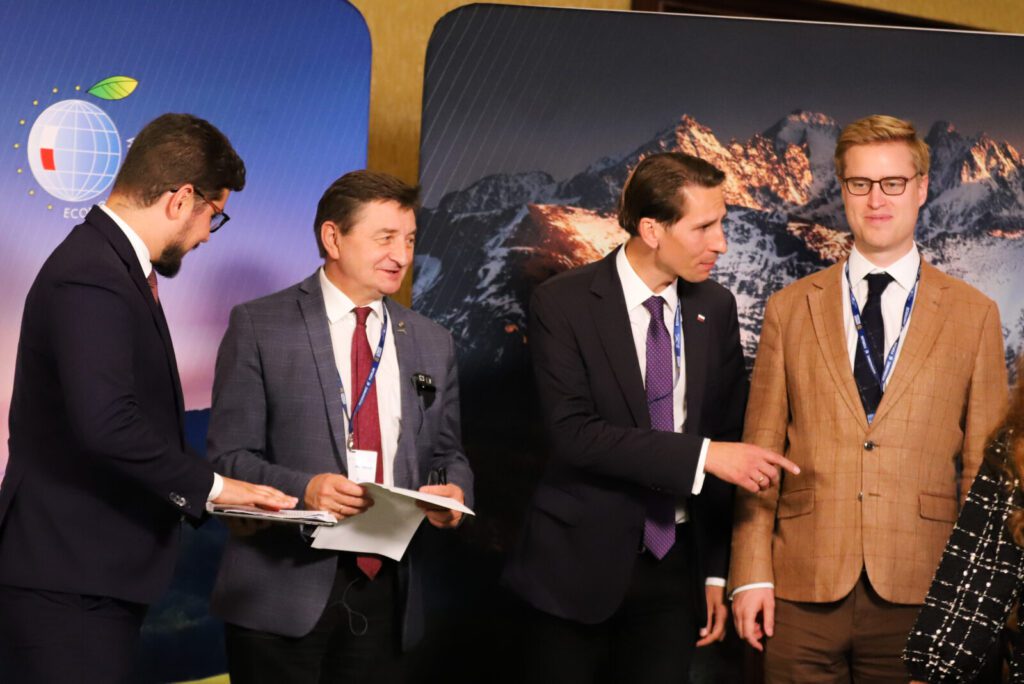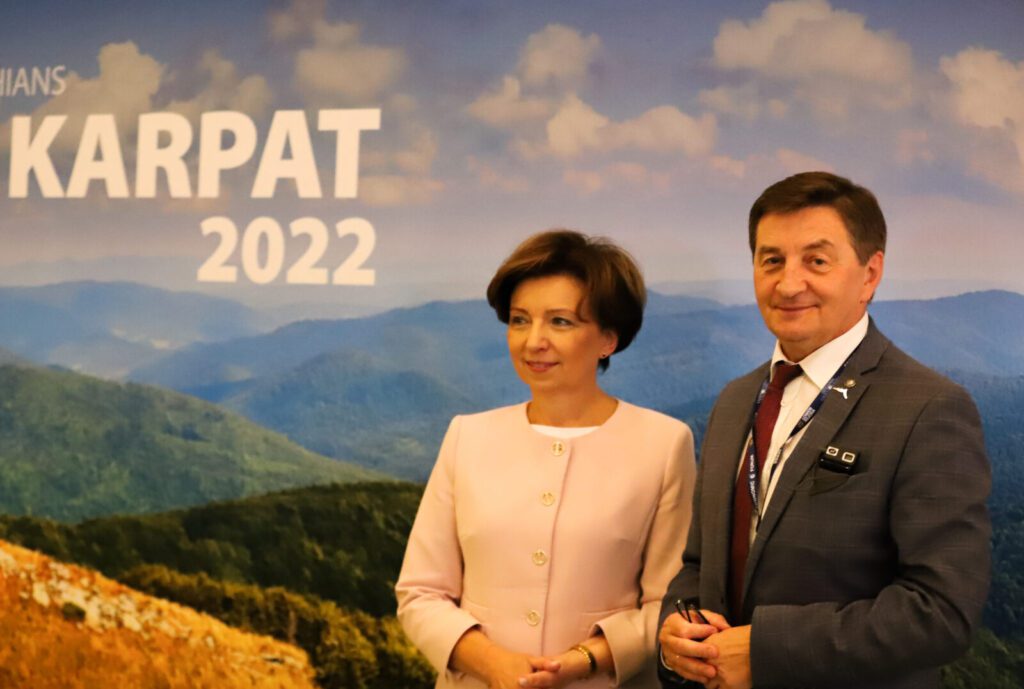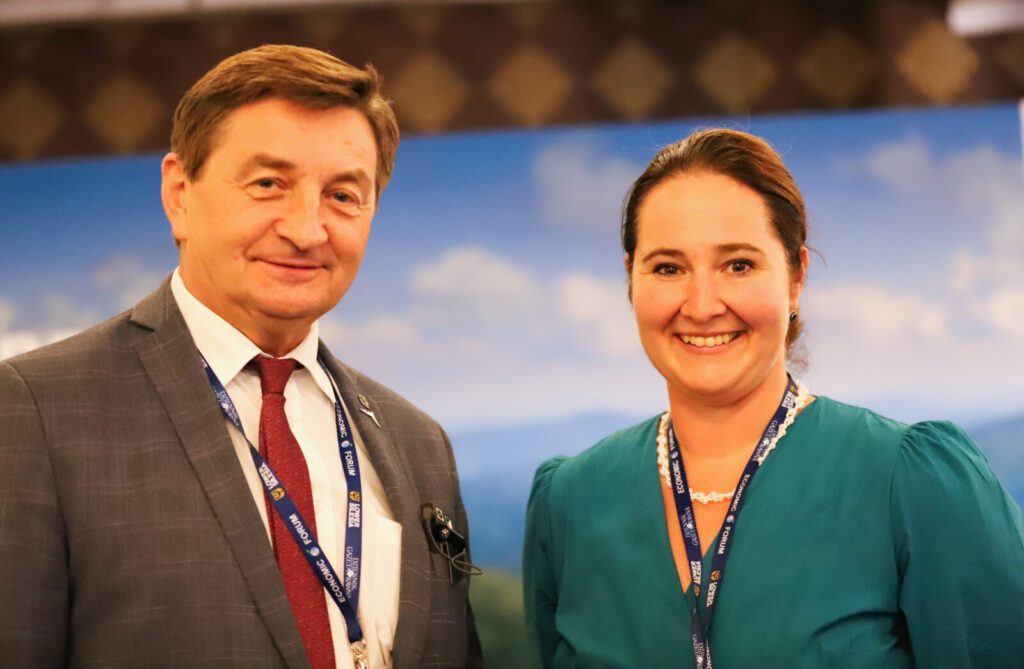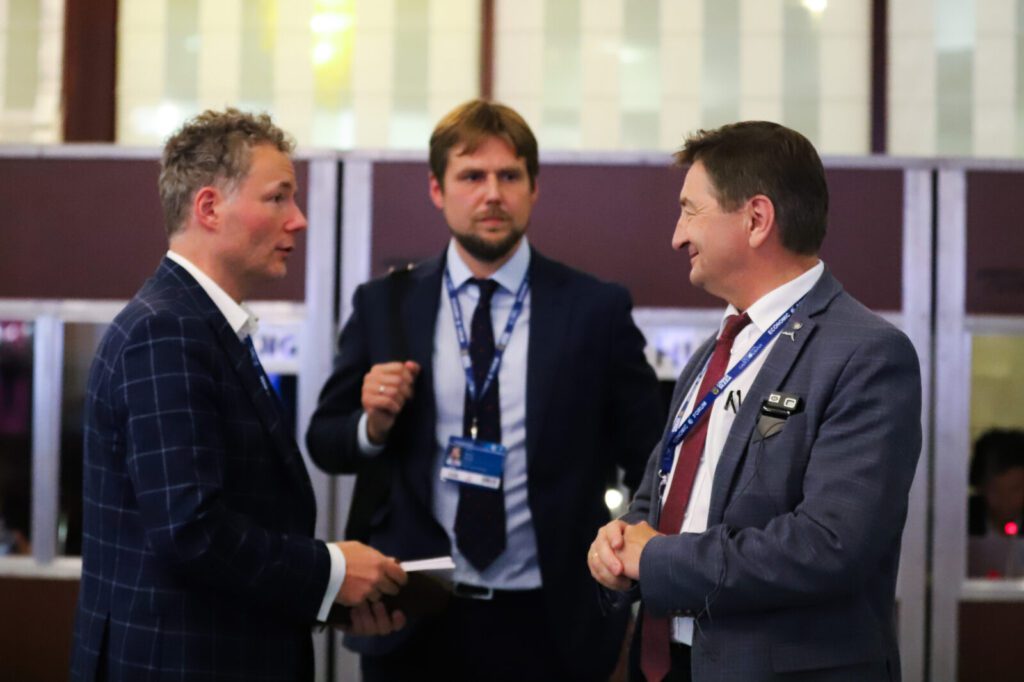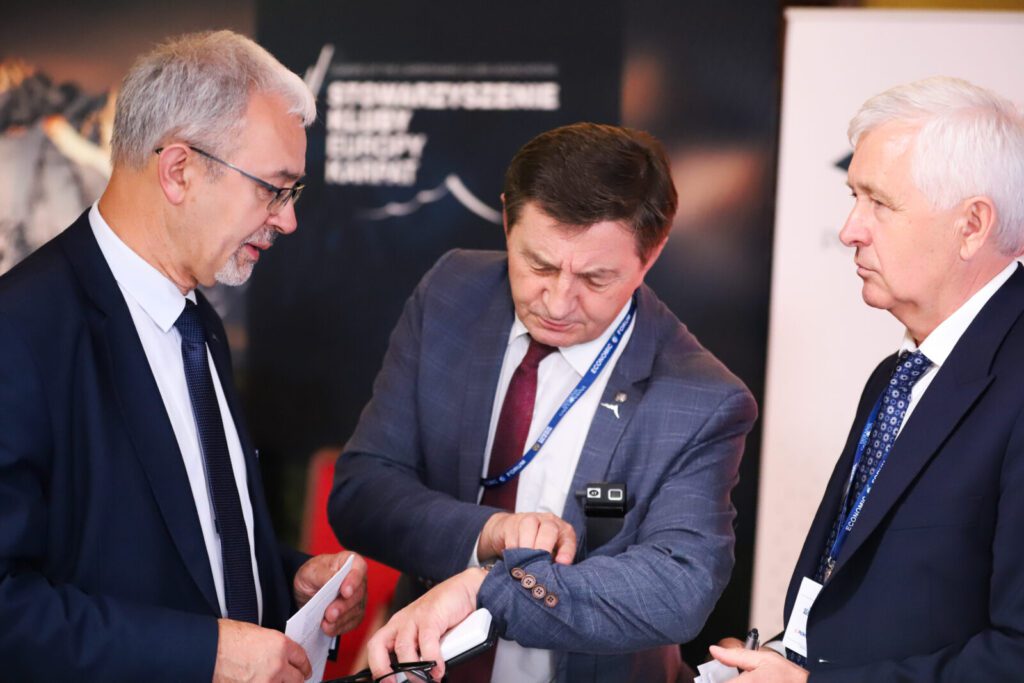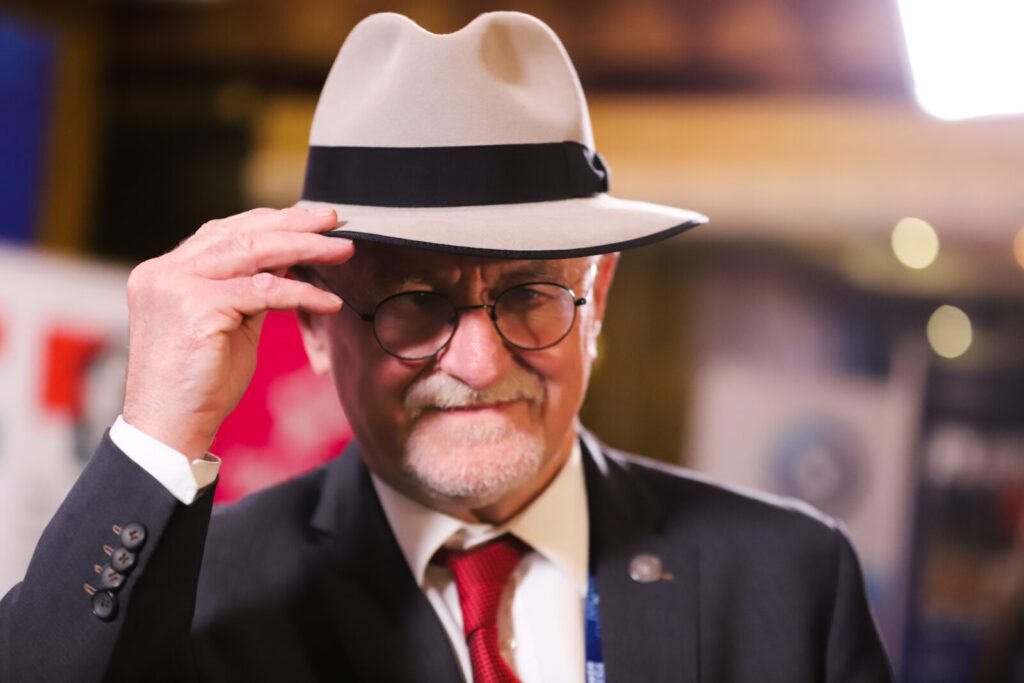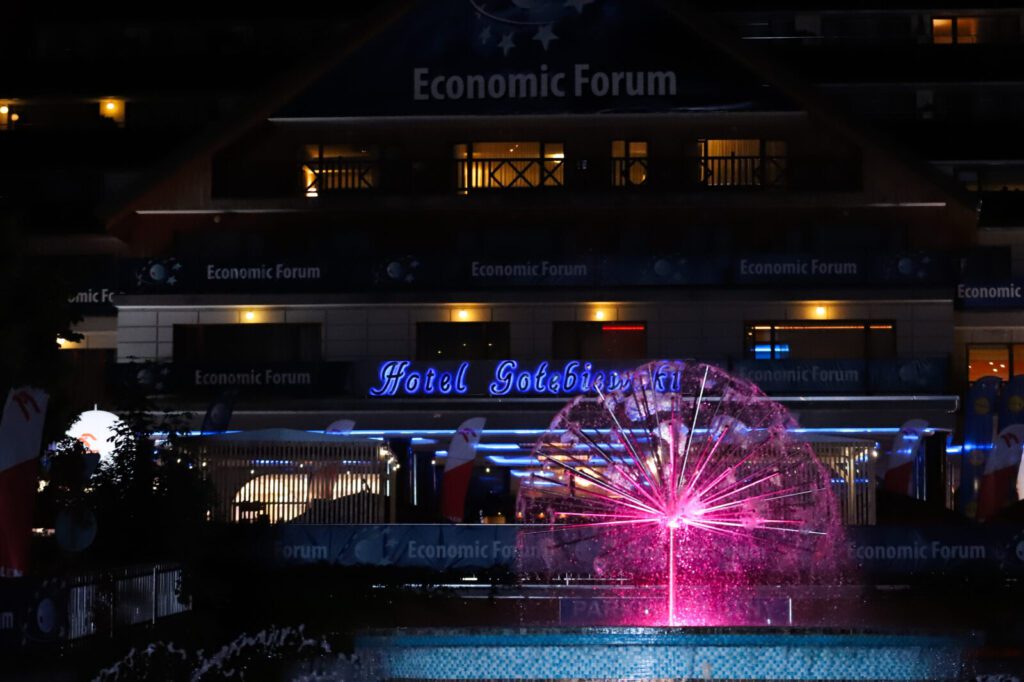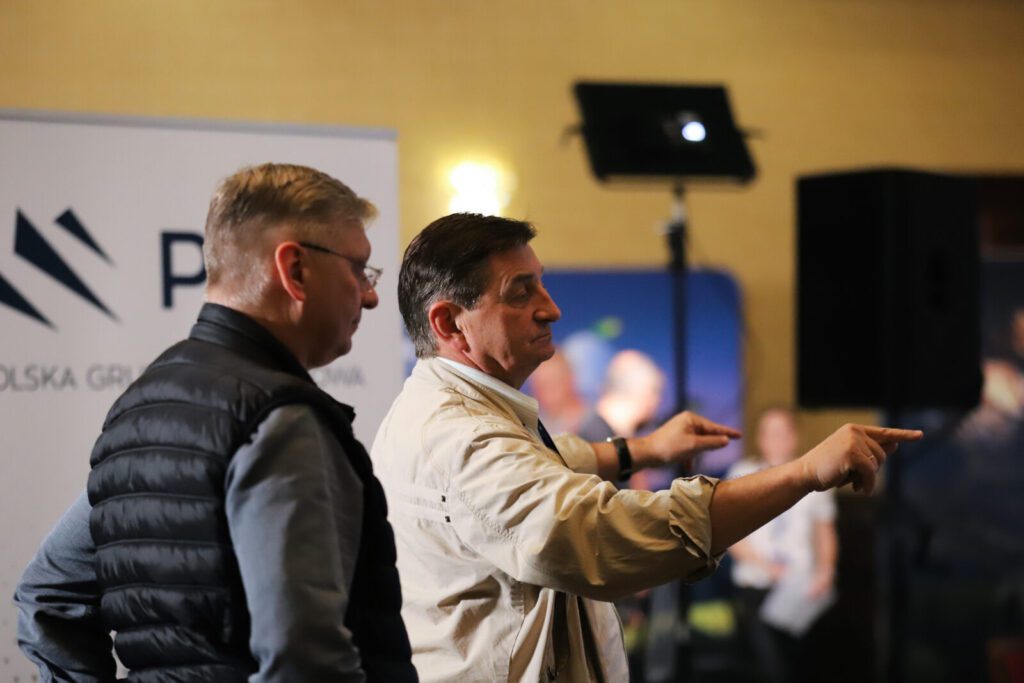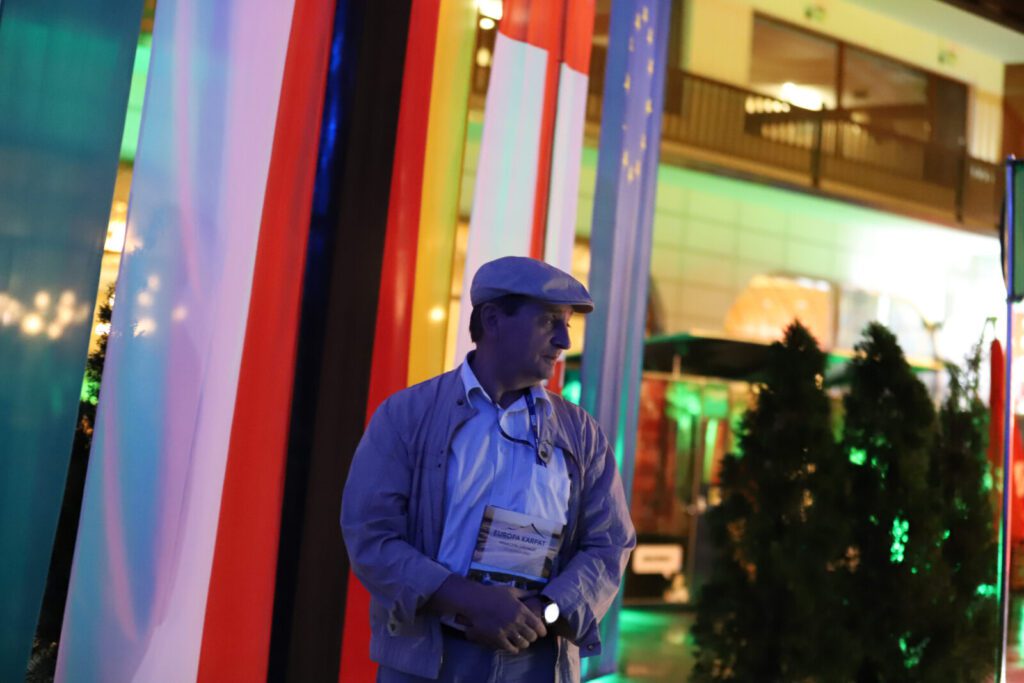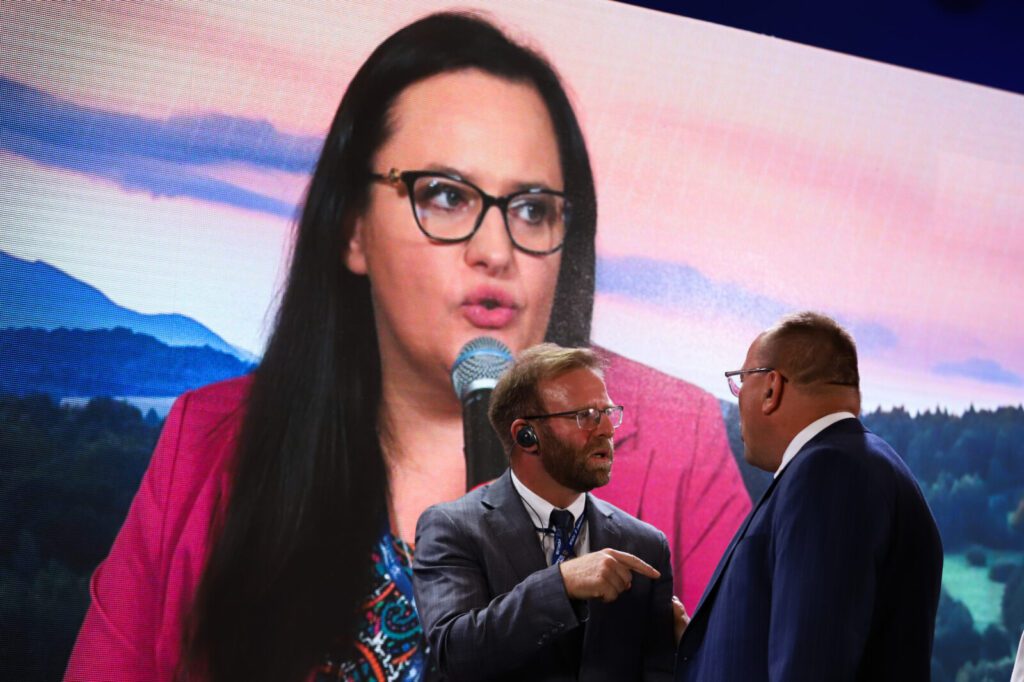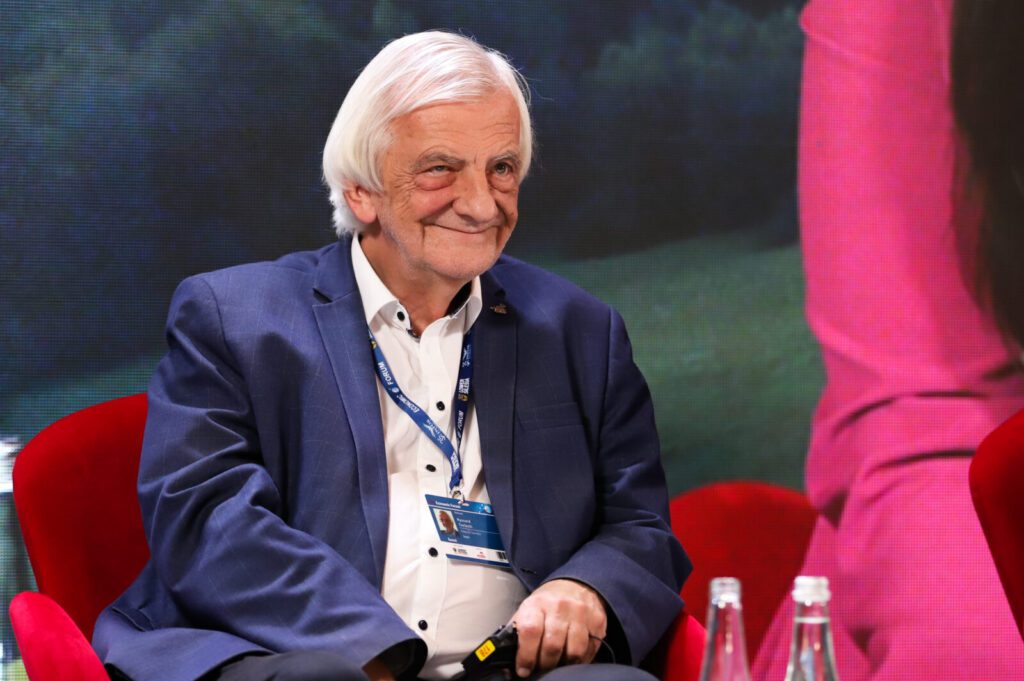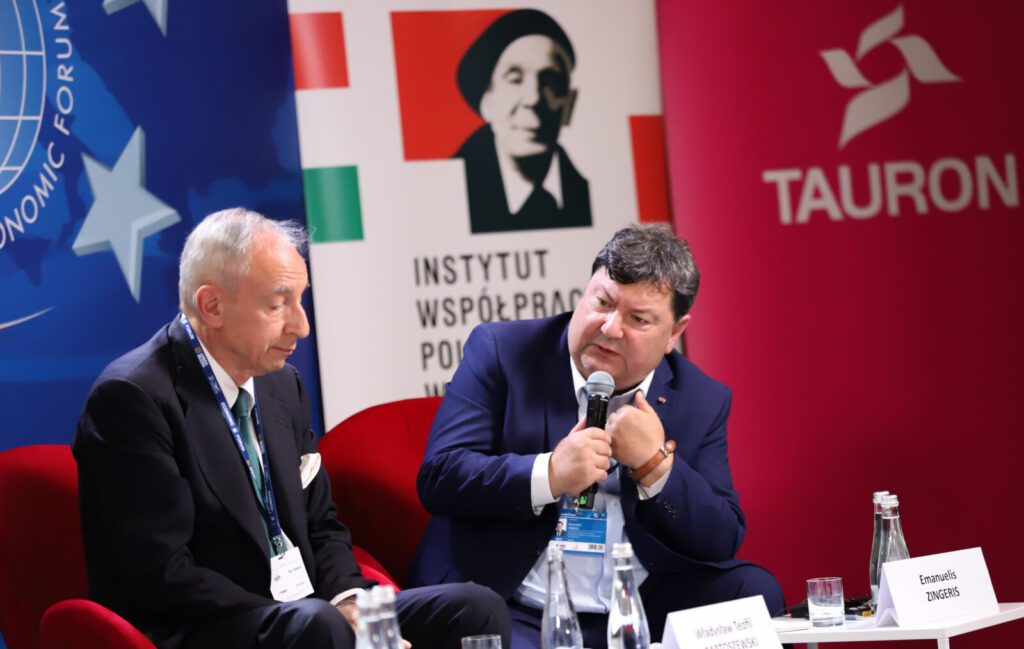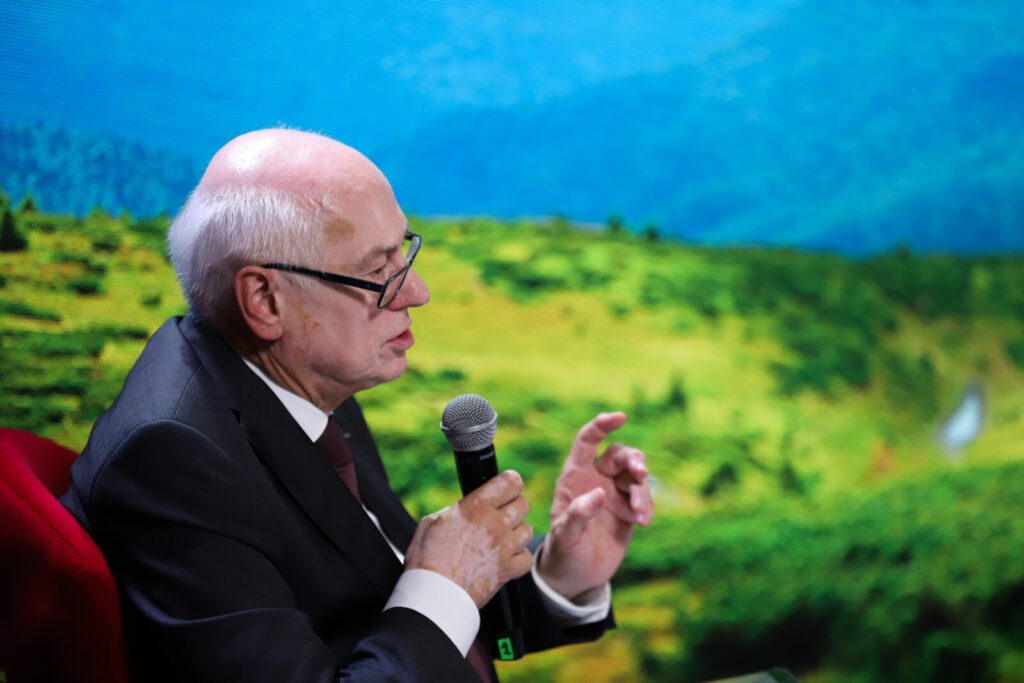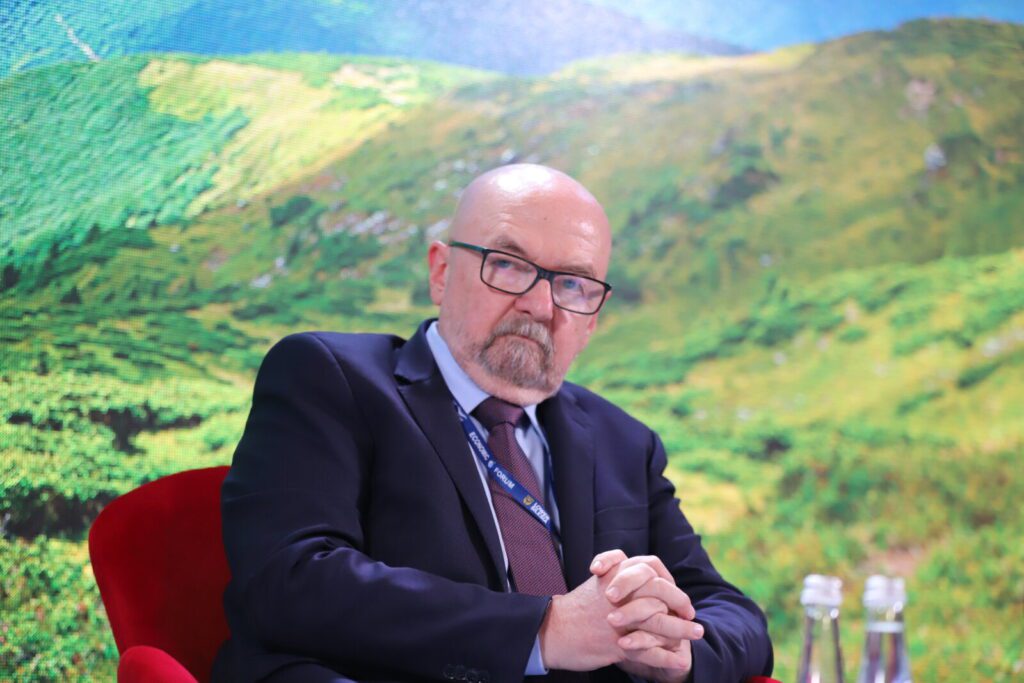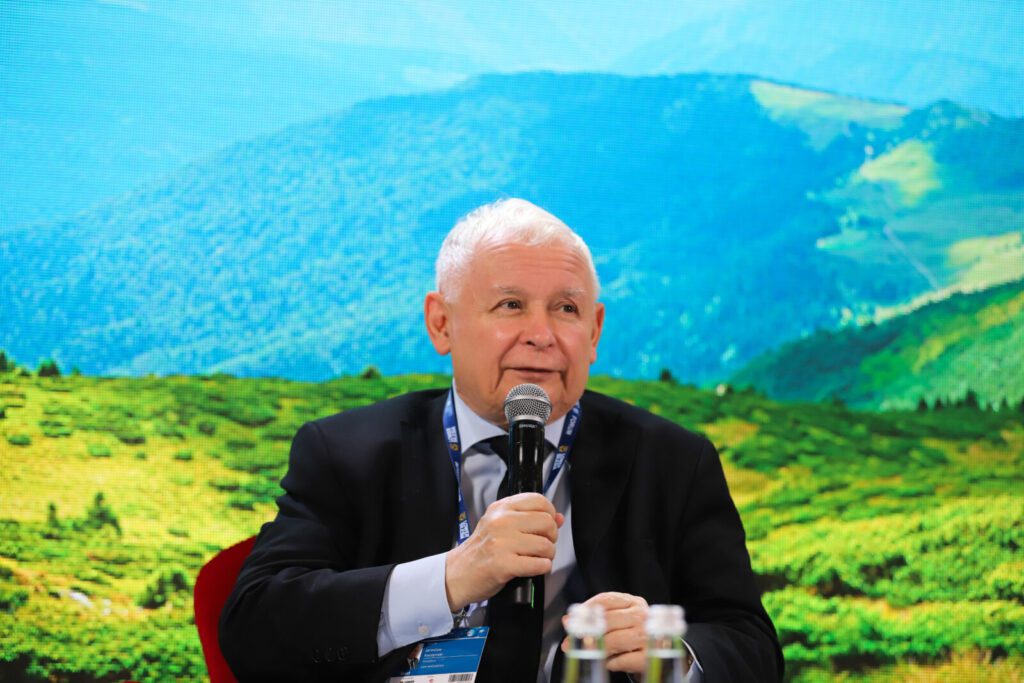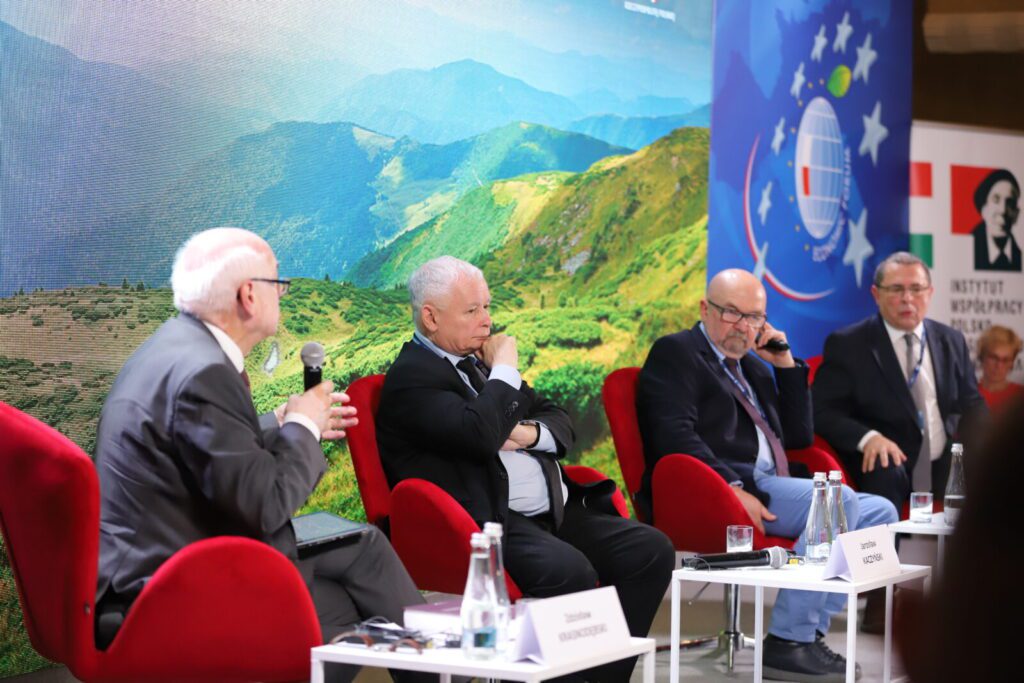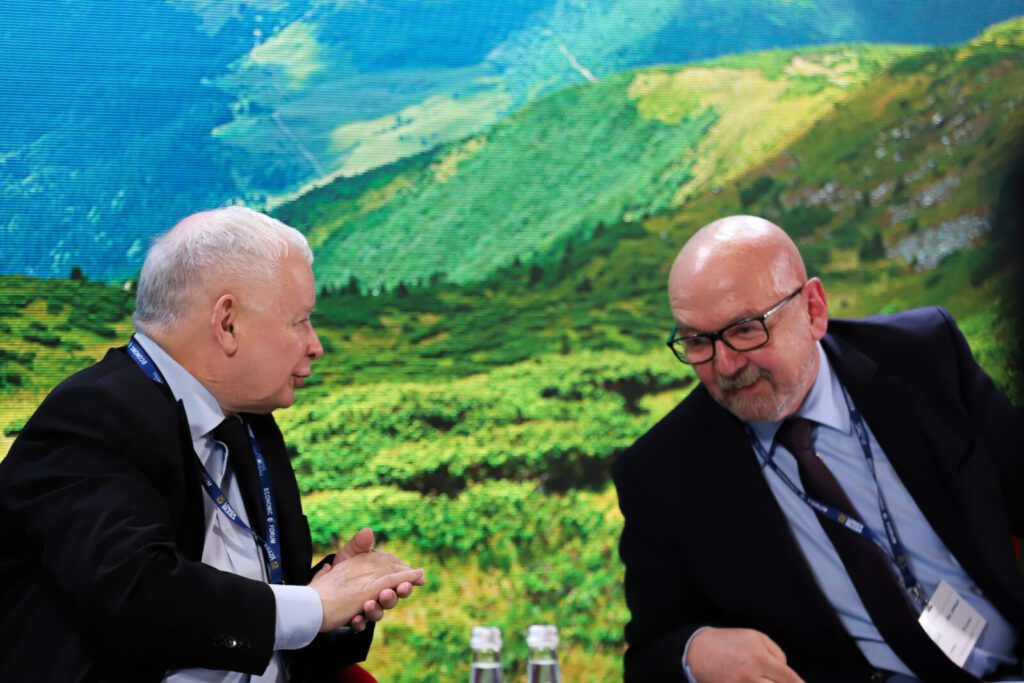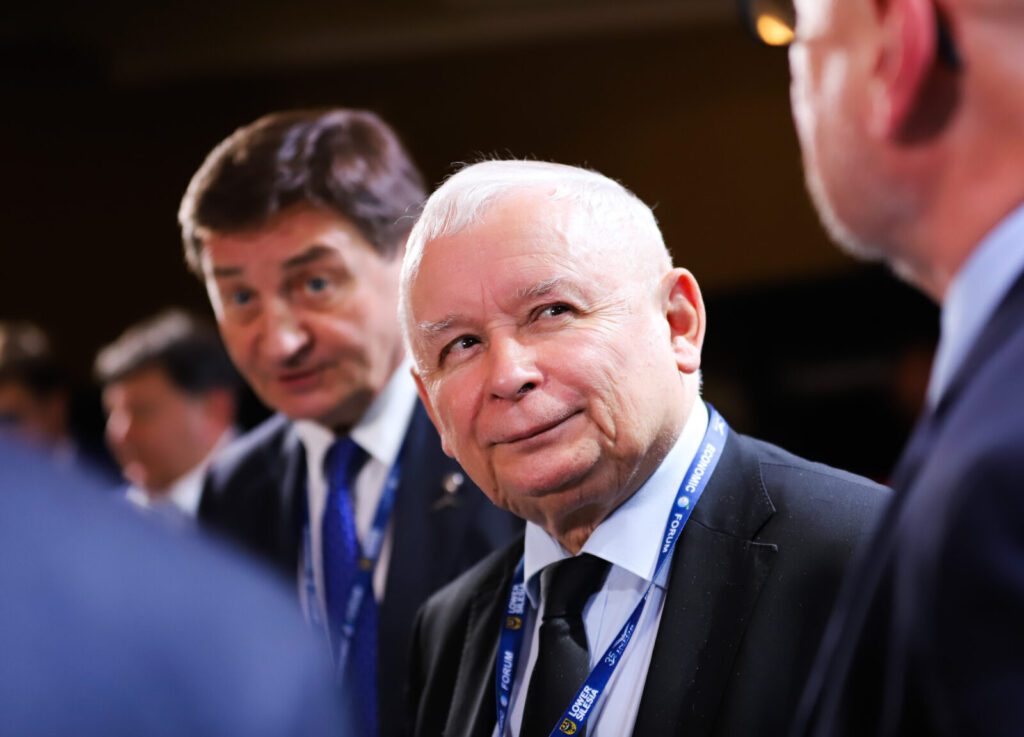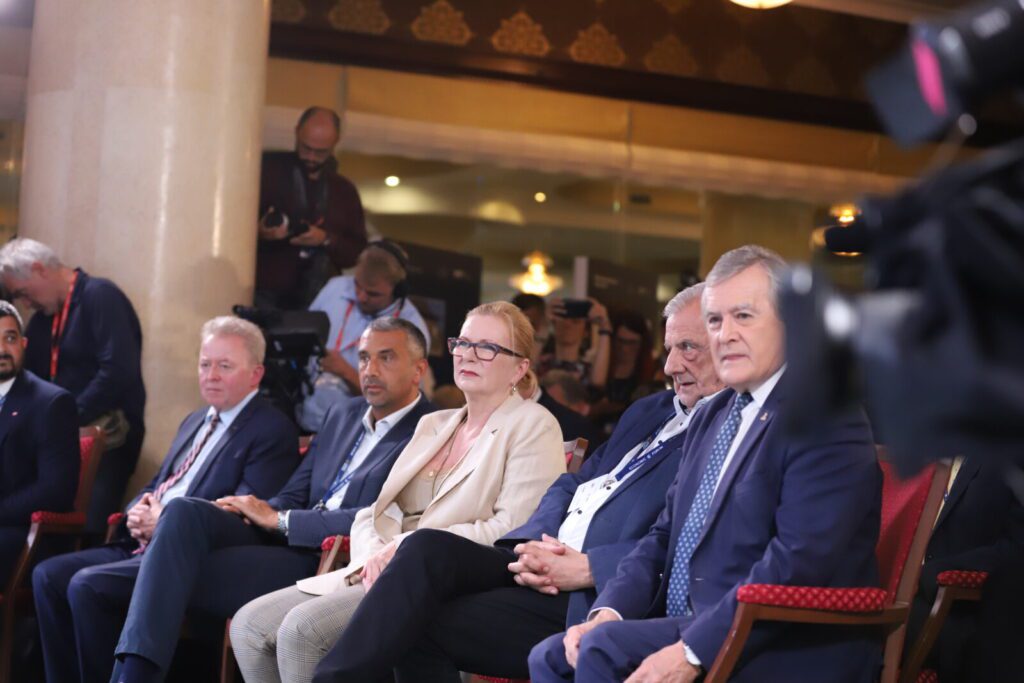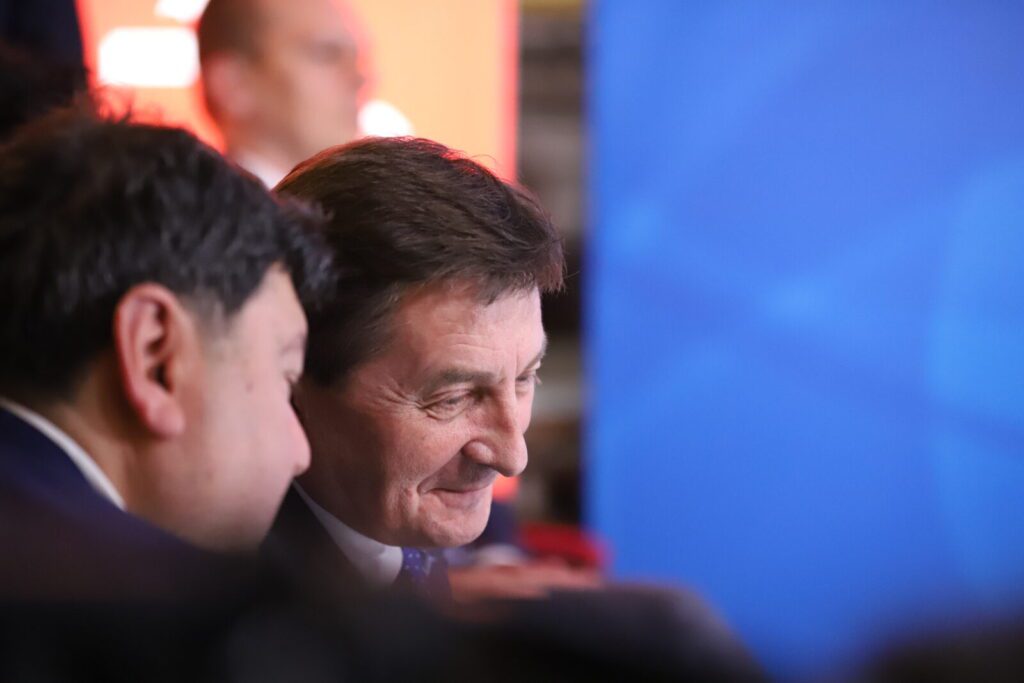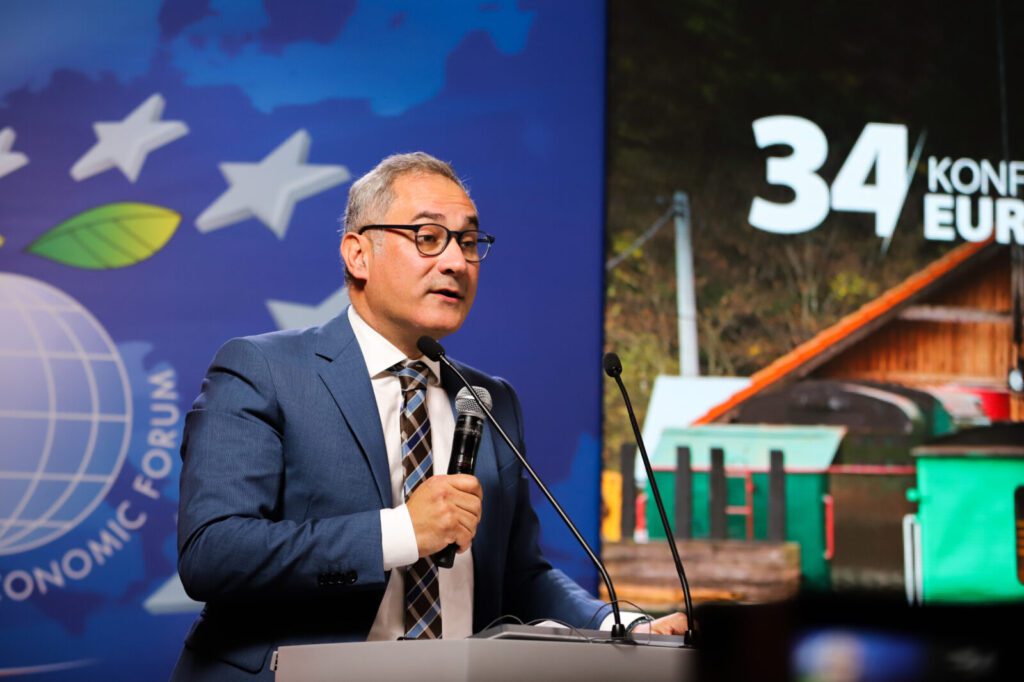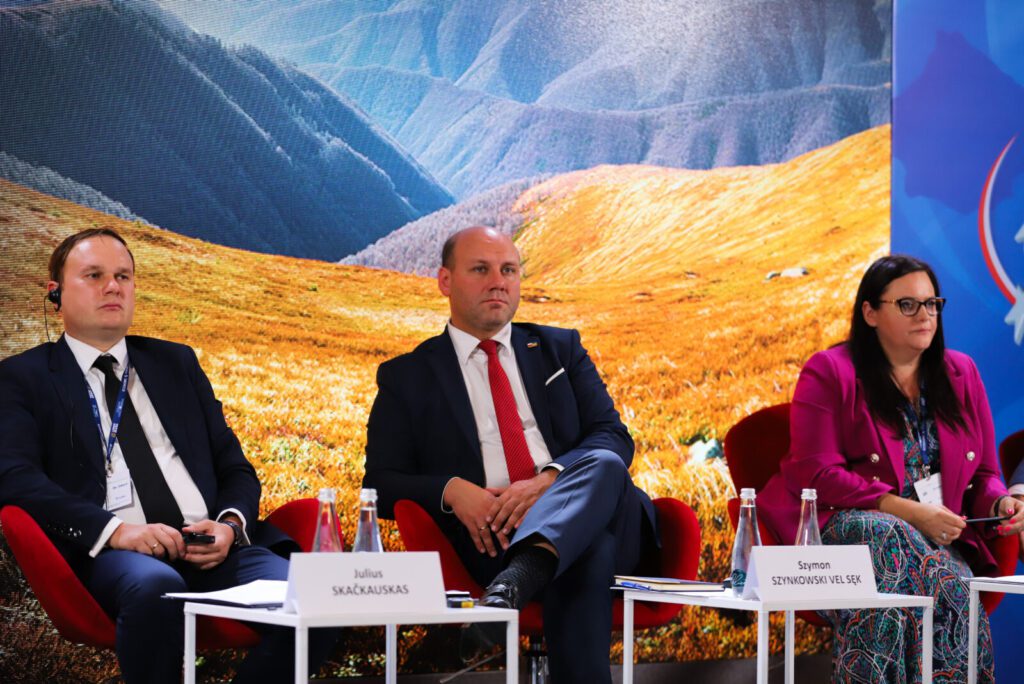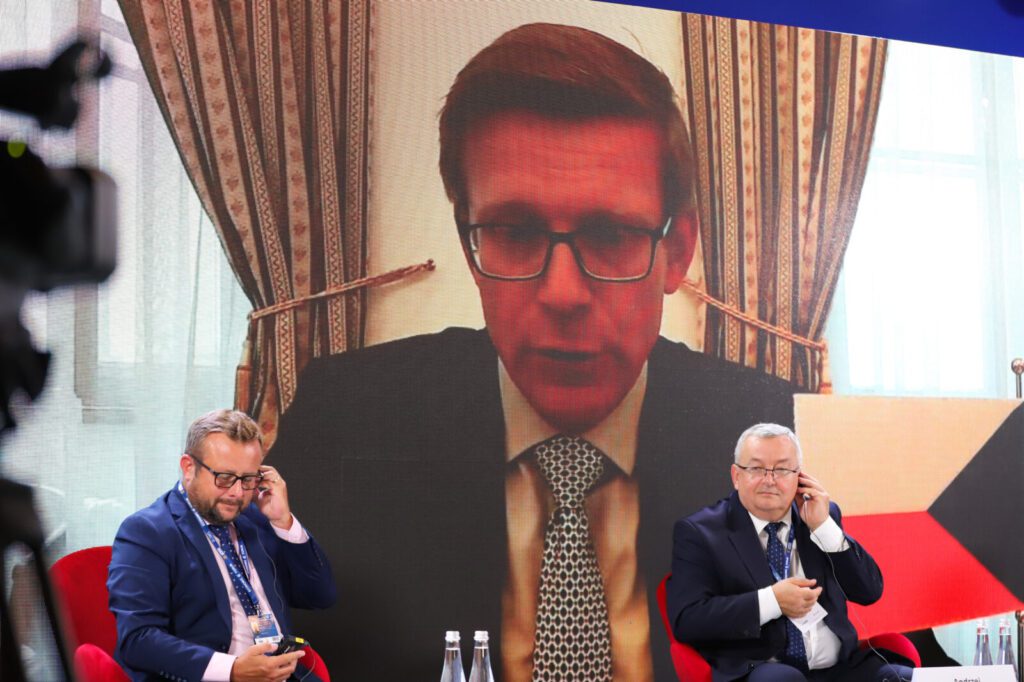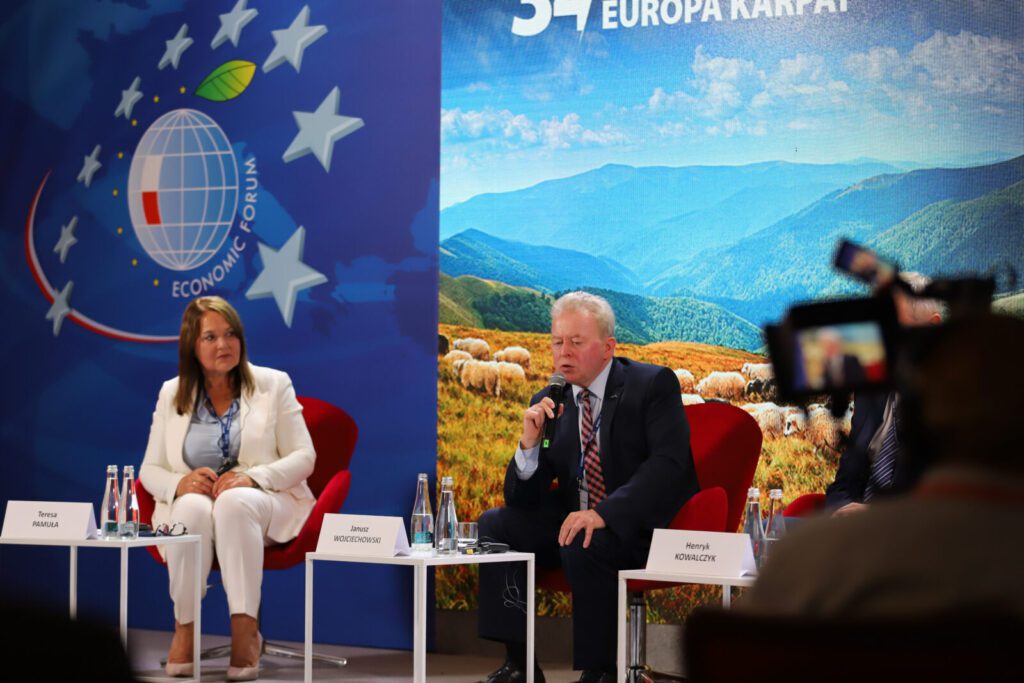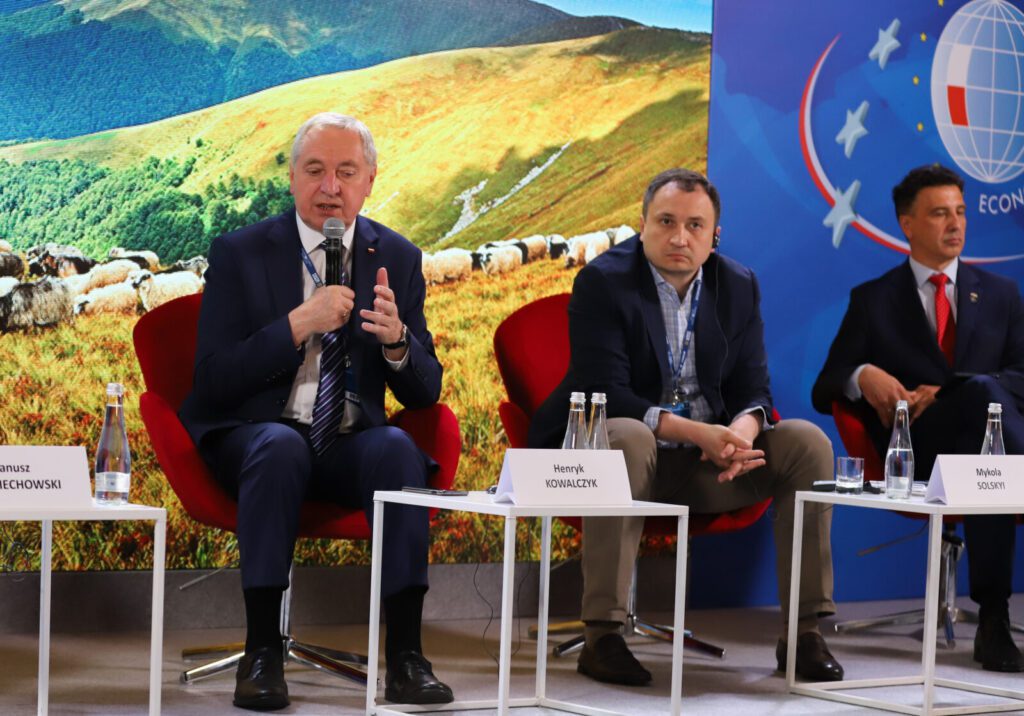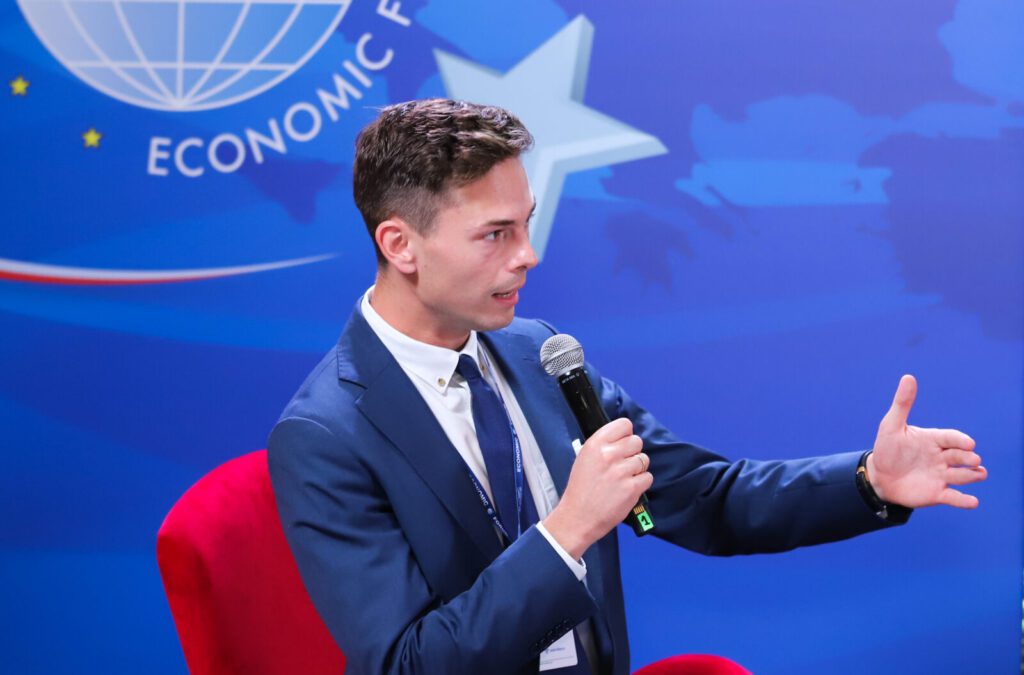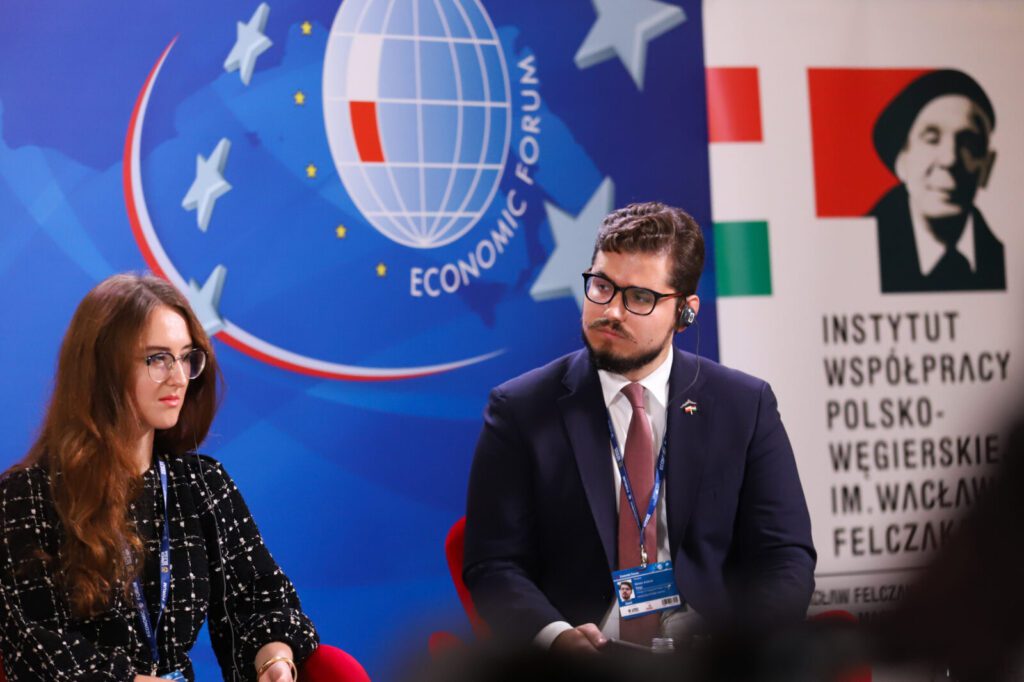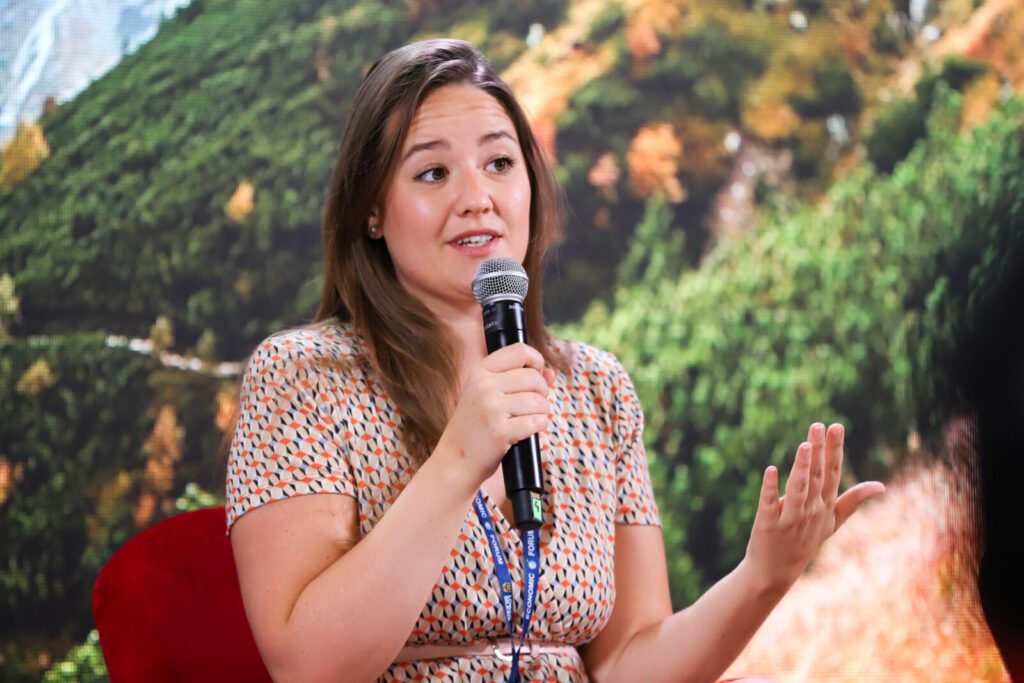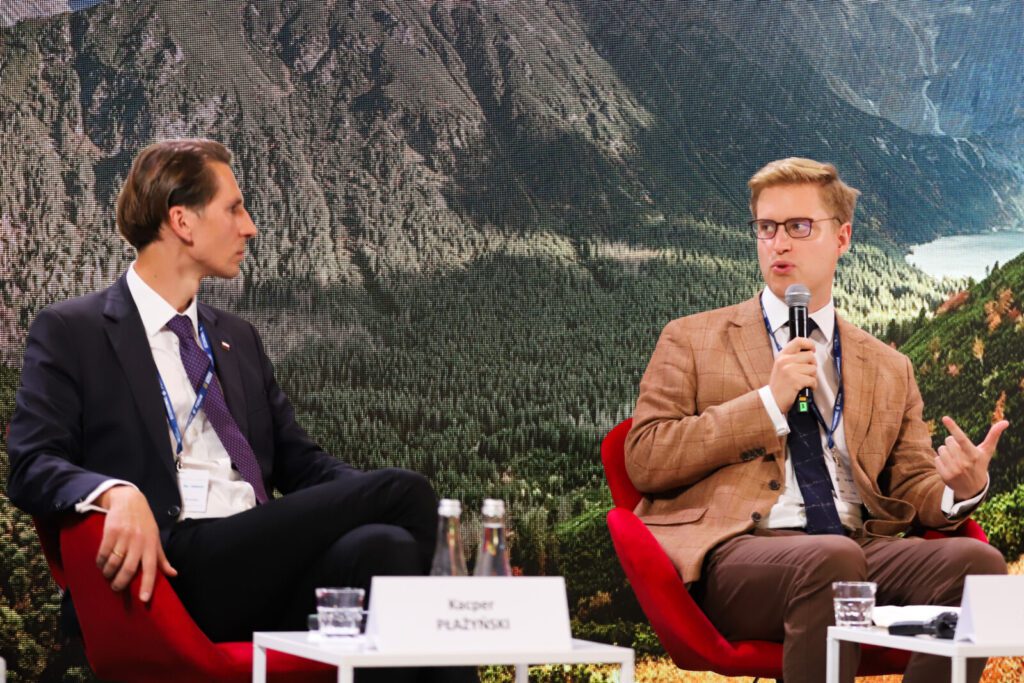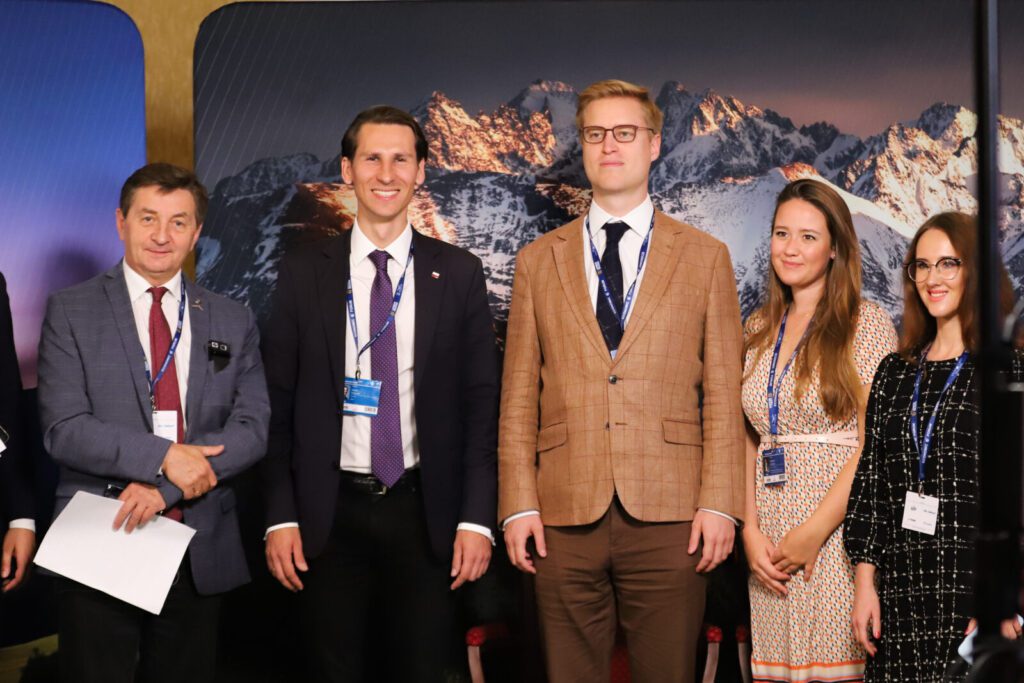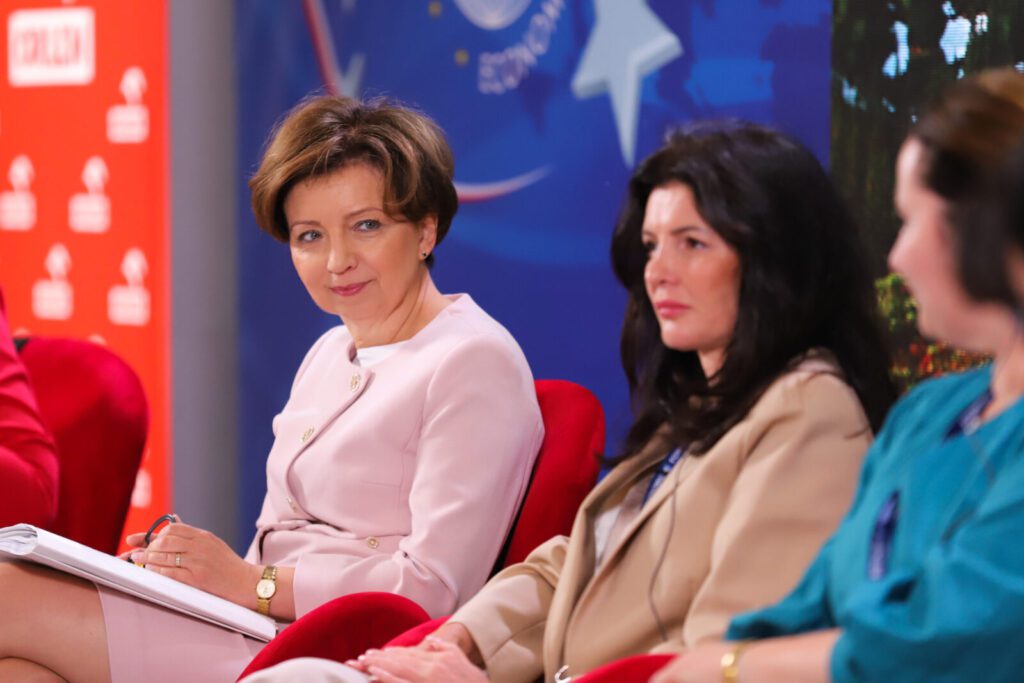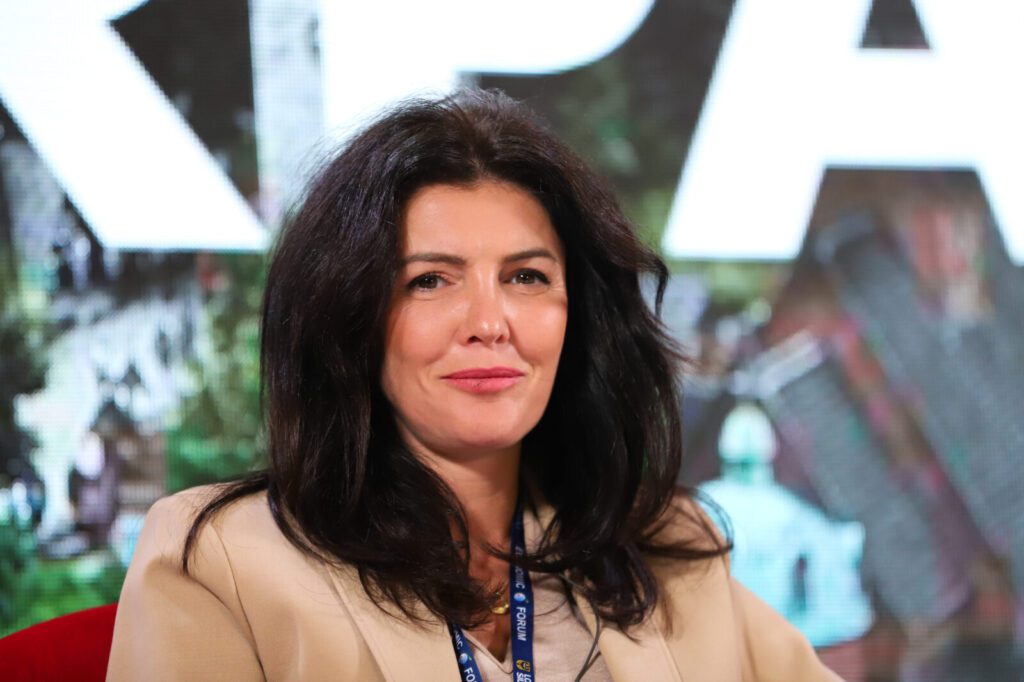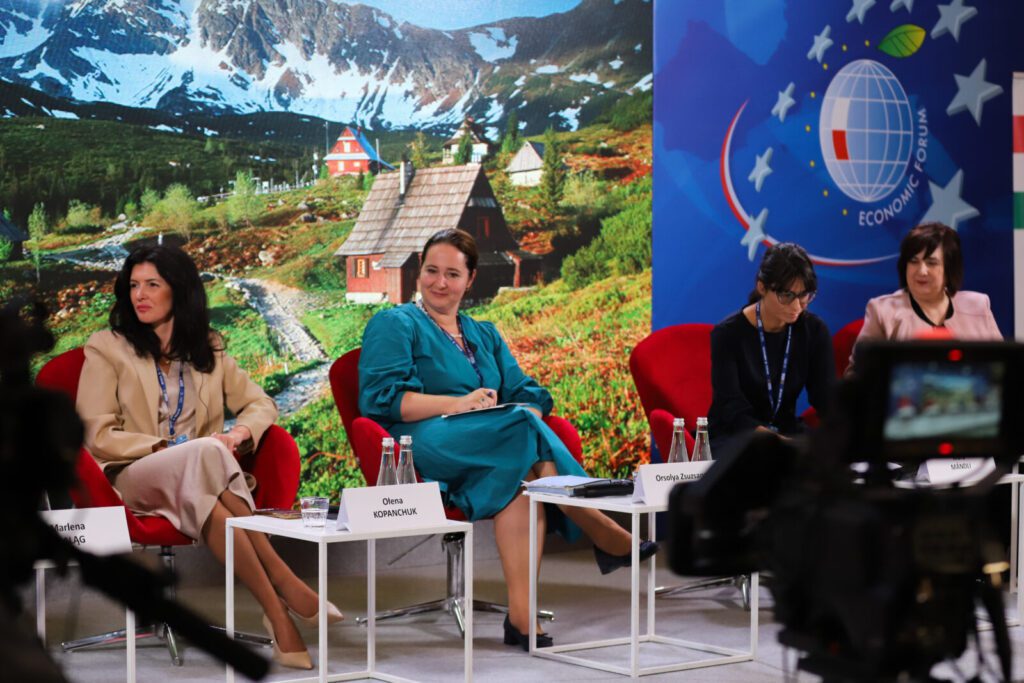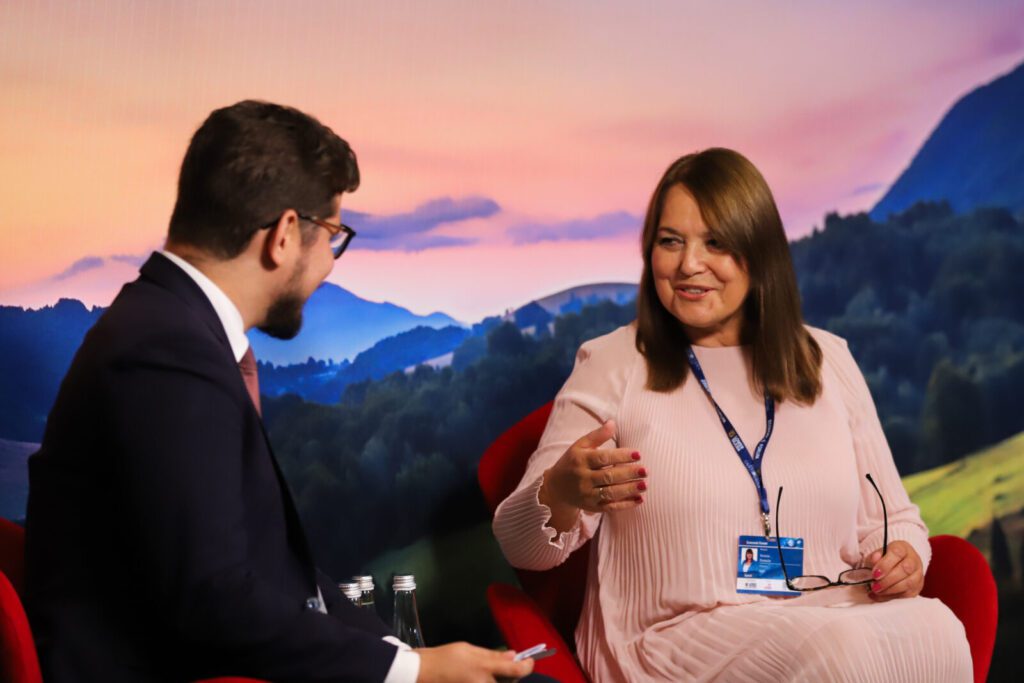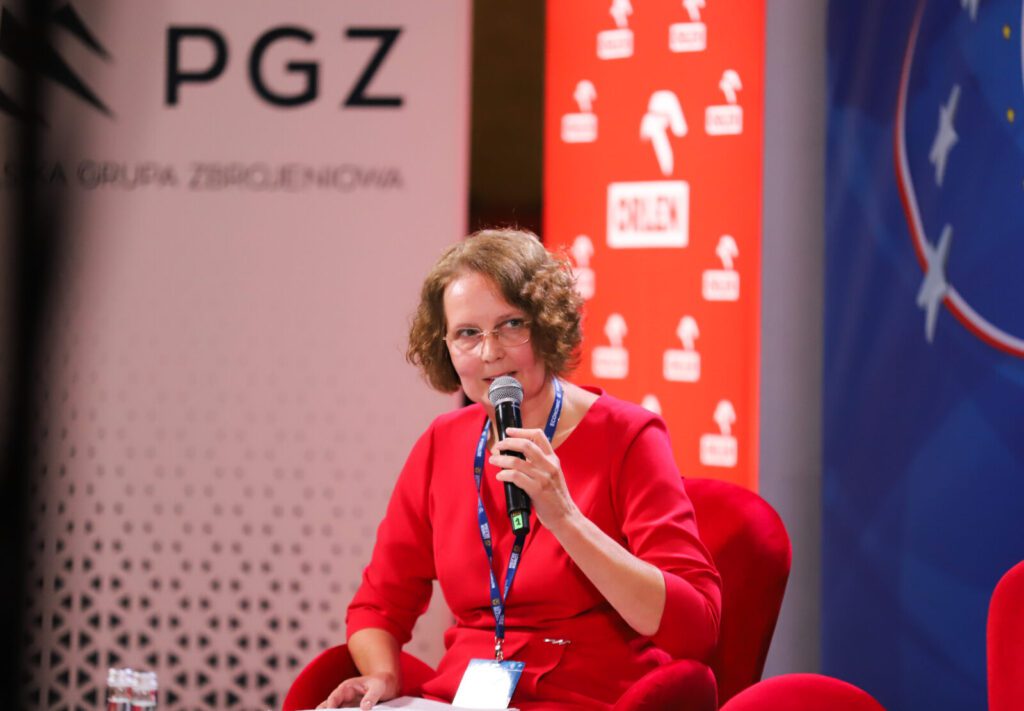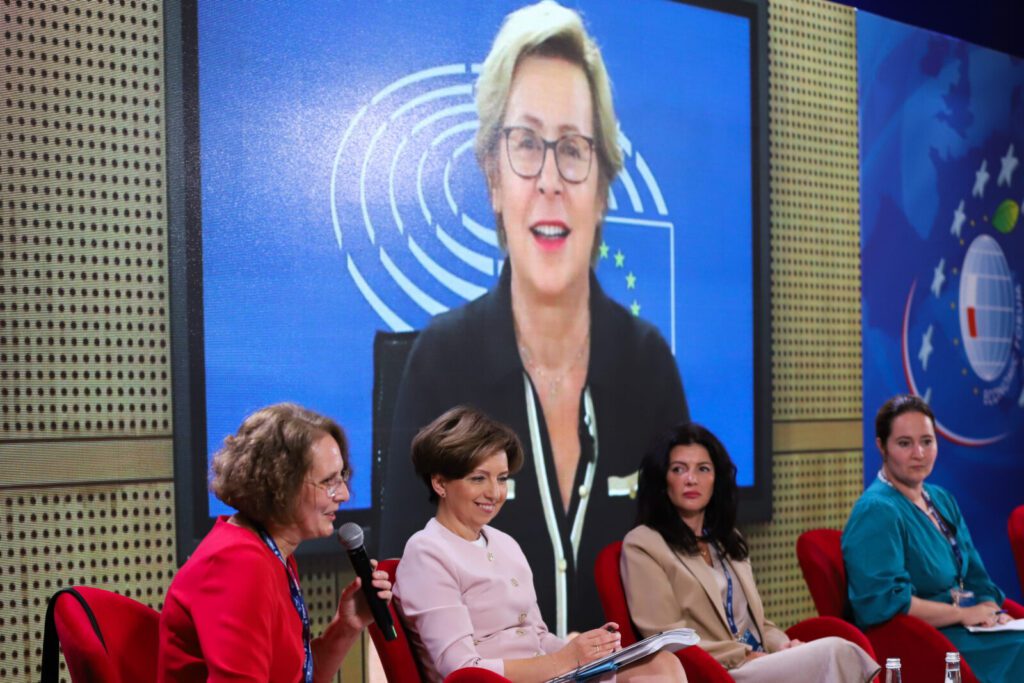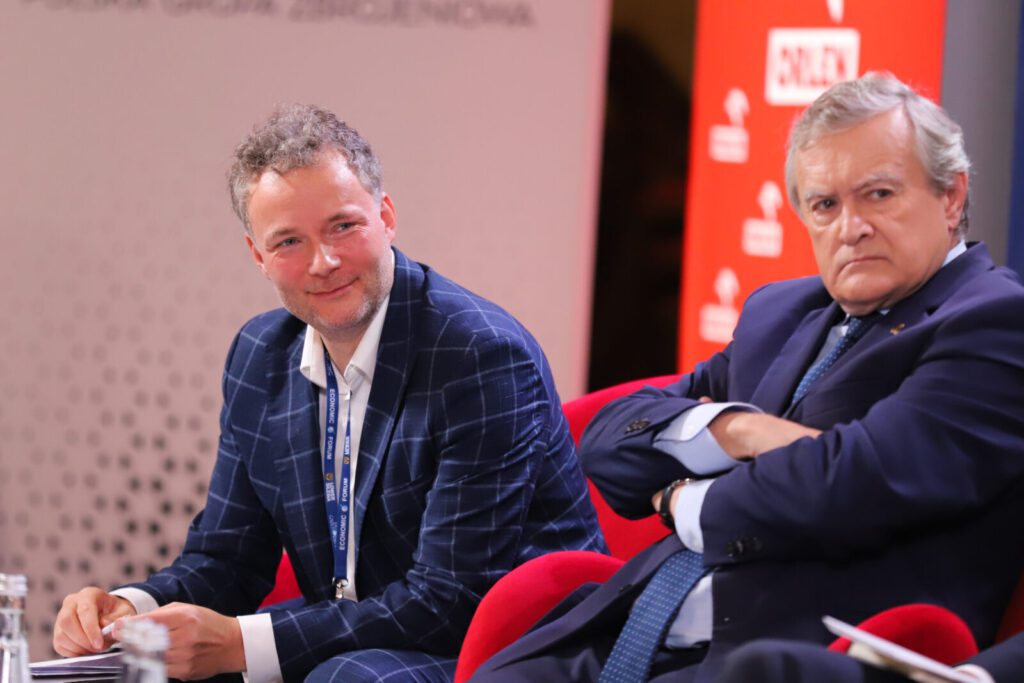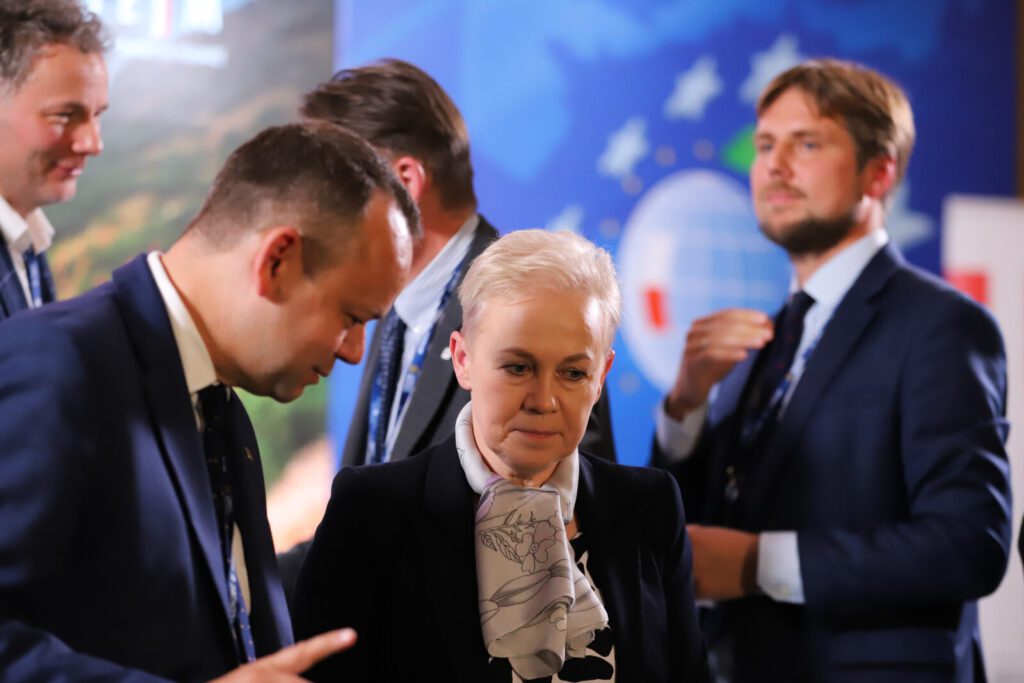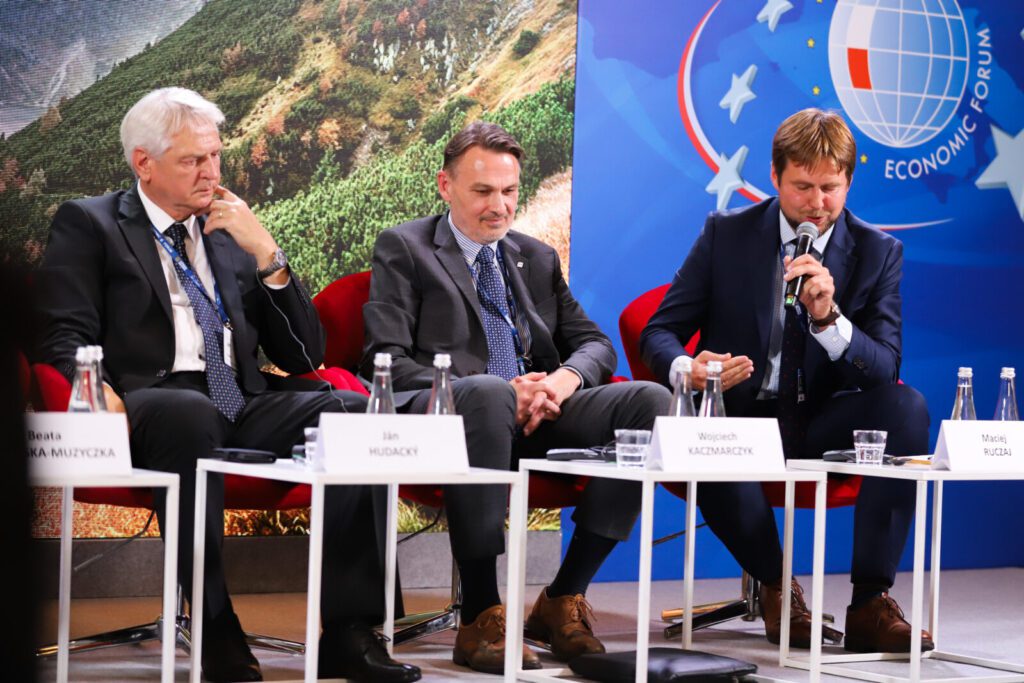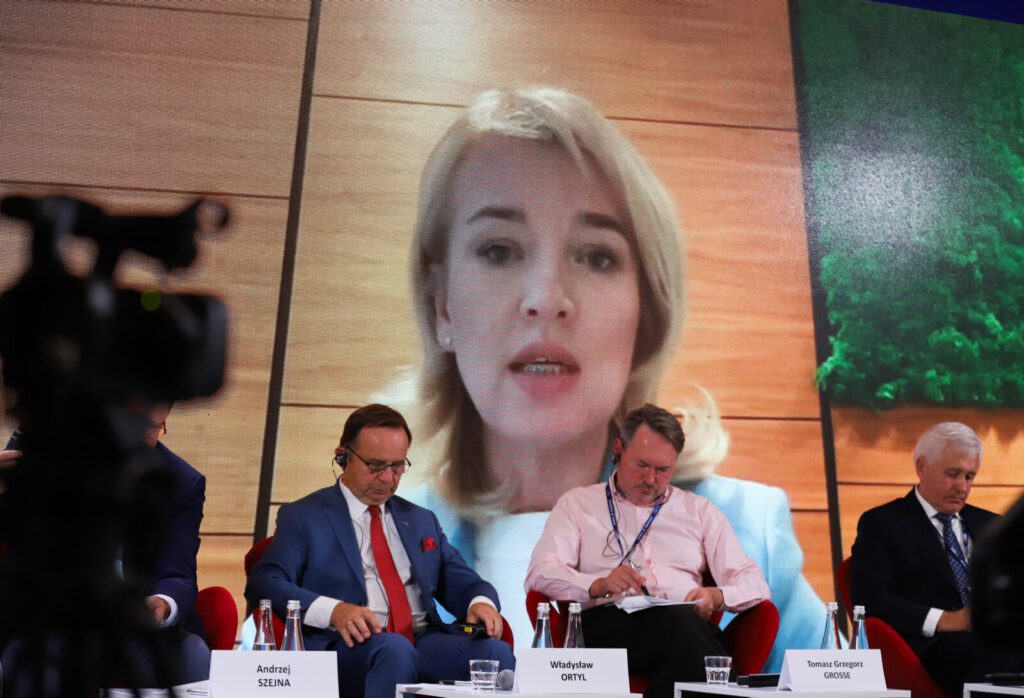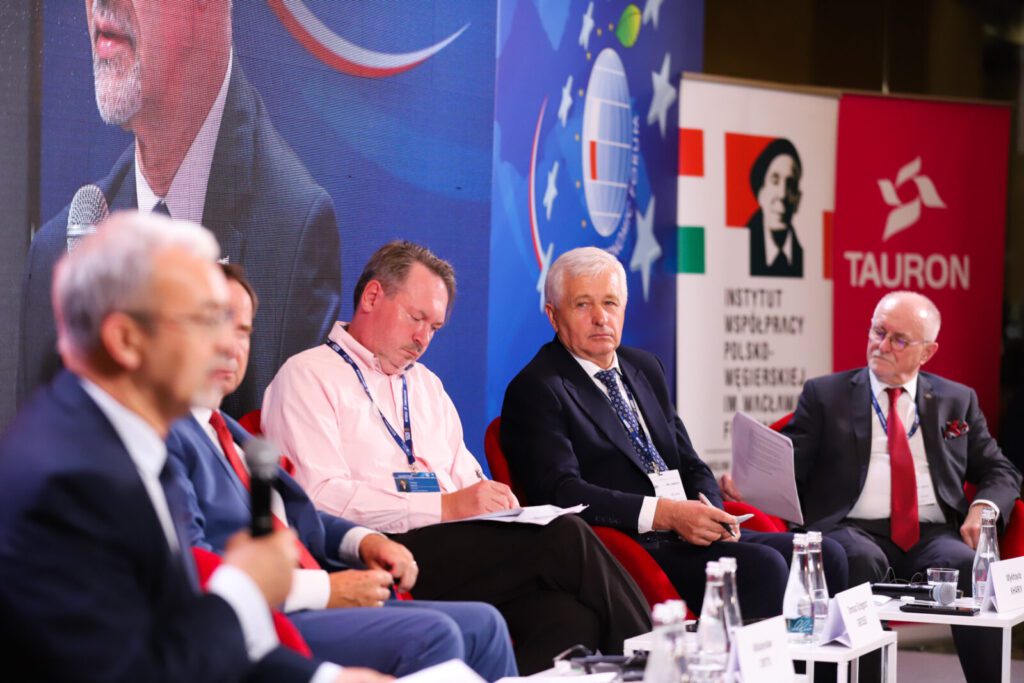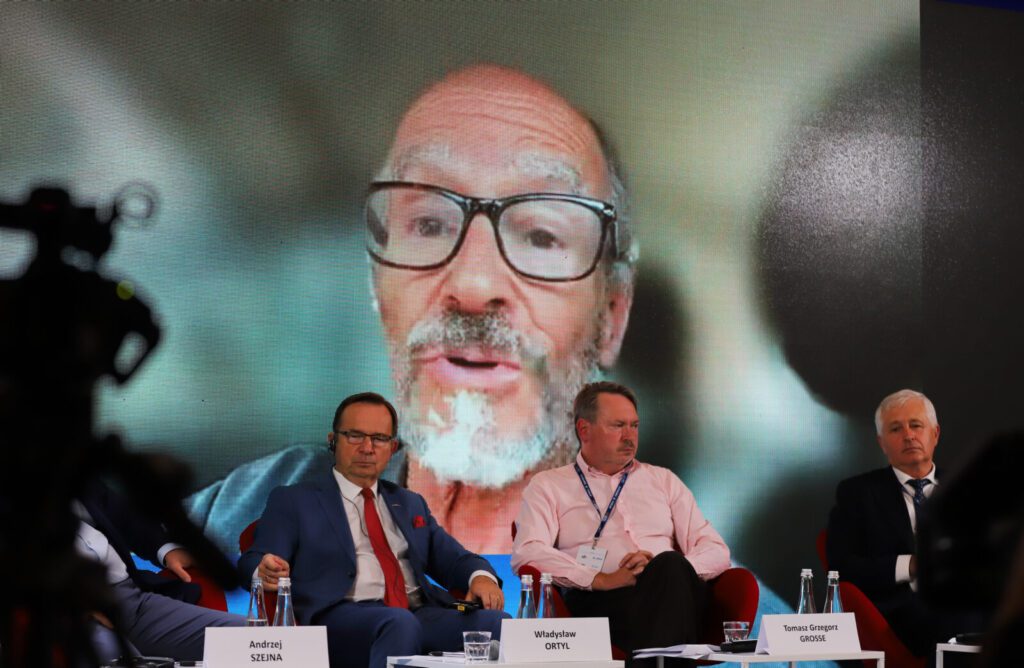The 34th edition of the Europe of the Carpathians international conference began in Karpacz on September 6=8, as part of the Economic Forum. The event opened with a speech by the chairman of the Foreign Affairs Committee, the originator of the conference, Marek Kuchcinski. - We focus mainly on Central Europe, but we look at Carpathian Europe, the Carpathian Mountains, as an area that unites rather than divides. Recent conferences have encouraged us to take up political issues as well; to show that the mountains - although indicating communication difficulties, different points of view - unite. Cooperation between our countries should be very strong. Moreover, as can be clearly seen in practice, in order to maintain our own independence, sovereignty, we must cooperate with each other. We say - the Carpathians, we think - Central Europe," the former Speaker of the Sejm noted.
Jan Malicki, director of the University of Warsaw's Study of Eastern Europe, spoke next. - In Poland, in our region, it is extremely necessary to institutionalize various important undertakings. Carpathian Europe is an example that if you put in a lot of consistency and persistence, it can be created, a great, important institution, extremely already significant on the map of public, social activities, all of Central Europe.
The meeting began with a reference to the previous edition of the conference, which took place in May this year in Krasiczyn in the Subcarpathian region, as well as a number of previous events. On this occasion, a special photographic exhibition was prepared to present previous meetings. - There are very few conferences of this pedigree in the Central European area. Carpathian Europe brings together very different circles, in this purely Polish area, i.e. legislators, representatives of the executive branch, experts in various fields, and at the same time brings into the dialogue very many people who come from neighboring countries and even further away," said the director of the Waclaw Felczak Institute for Polish-Hungarian Cooperation, Maciej Szymanowski.
Central European Identity. Attributes and symbols
The panel that opened Tuesday's discussions was devoted to the identity of Central Europe, the characteristic features of this part of the continent. Among the topics discussed were common historical experience and sovereignty.
- In today's globalized world we have a big problem with identity, many people are searching for it, searching for their place, their roots. Often, when talking about Central Europe, we know little about it, we still know little and understand little. We are such a space where the key concept is the notion of nation and national sovereignty. We often lost state continuity, sovereignty, but the national community survived. We have borne a very heavy price to defend and maintain freedom," said Deputy Senate Speaker Marek Pęk, opening the discussion.
The Lithuanian perspective was presented by Seimas Foreign Affairs Committee member Emanuelis Zingeris. - We are here to cement what the May 3 Constitution was all about. We are doing everything to ensure that the legacy of the Union of Lublin is accepted as not only a legacy of both nations, but a European legacy. But unfortunately, we have a new wall built not by us, and we must do everything to solve the economic problems, related to energy," noted the head of the Seimas delegation to the Parliamentary Assembly of the Council of Europe.
- A great geopolitical reorganization awaits us, which depends on structural reform in the world order. The presence of countries in the region in global organizations, but also on its own actions, including in the context of expanding the field of Central Europe. It must have policies that reach out to other continents. The war in Ukraine shows the importance of Central Europe for world politics. The future of world peace is played out in this part of the world," said Polish Ambassador to the UN Krzysztof Szczerski.
During his speech, Markiyan Malskyy, former Ambassador of Ukraine to Poland, noted that the topic of Central European identity is extremely important right now. - Because Central Europe is not just a historical-cultural or institutional picture. Rather, we talk about Central Europe as an economic, social being. We are also thinking about the place of Ukraine, which in a cultural, economic, religious, spiritual sense is part of it. We have similar historical processes," he stated.
The moderator of the first panel was Deputy Speaker of the Senate Marek Pęk.
Public media in an era of threats and their cooperation in the heart of Europe
Tuesday's second panel focused on the need to develop cooperation among public media from Central and Eastern European countries. Creating more effective structures for the exchange of information between broadcasters could be critical in the face of growing disinformation.
- At the beginning of the war in Ukraine, there were attempts to balance the message. Of course, one should look for many rationales, many truths. However, we can see that the Russian power apparatus is very aware that this attitude in Western Europe is occurring and is simply taking advantage of it. We, for many days after the Russian invasion in Ukraine, tried to convince people in Western Europe not to talk about the Russian-Ukrainian war, but about Russia's aggression against Ukraine. This finally had an effect," said Marek Solon-Lipinski, deputy director of Polish Television's Office of Sales and International Cooperation.
- As a public media company we were preparing for the Russian invasion, we had several scenarios of possible actions. We knew what to do despite the highly stressful situation. The public broadcaster joined forces with private broadcasters. We created a joint media marathon. Together we send a signal to our citizens. Digital broadcasting is also working great. We have also received capital help from our European partners. For us, it is very important that journalists always talk about context. It is important to explain that the war was unleashed by the Putin regime. We are fighting a powerful enemy," stressed Mykola Chernotytskyi, CEO of Ukraine's National Public Teleradiokompany.
Head of investigative journalism at Lithuanian LRT Television Indrë Makaraitytë pointed out that Russian propaganda "was not born today. - We were criticized by colleagues in the West. They said we were not publishing the Russian side's position. But now their eyes have been opened, they have understood what Russian propaganda is. Various groups spreading Russian propaganda have activated their forces One of the goals of our work is to look for ways to defend ourselves against this propaganda and to look for the people behind it. We also want to detect the sources of funding," she said.
The discussion was moderated by Piotr Babinetz, chairman of the Sejm's Culture and Media Committee and a member of the National Media Councils.
During the first day of the conference, a meeting of the Program Council of the Clubs of Carpathian Europe was also held.
Among the co-organizers and partners of the 34th Carpathian Europe were, in addition to the Chancellery of the Sejm: Waclaw Felczak Institute for Polish-Hungarian Cooperation, PKN Orlen, Polish Armaments Group, Powszechny Zakład Ubezpieczeń, Tauron Polska Energia, Telewizja Polska, TVP World.
Food security the foundation of the European and global order
The second day of the meeting (September 7) began with a discussion of food security in the context of Russia's attack on Ukraine, which has caused a number of social and economic consequences. As a result of the Russian invasion, fertilizer and energy prices have skyrocketed and macroeconomic conditions around the world have deteriorated. Russia attacked Ukraine's transportation infrastructure and blockaded Black Sea ports, from which 90 percent of Ukrainian agricultural products are customarily exported.
European Union Commissioner for Agriculture Janusz Wojciechowski noted that the EU is trying to support Ukraine primarily in grain exports, and solidarity corridors have played an important role in ensuring that exports have not been completely blocked. - We are aware of the threats to food security. We have taken various measures against this, including suspending administrative restrictions.
In turn, Deputy Prime Minister Henryk Kowalczyk said that food security should all the time be the number one topic across the EU. - We are facing a great challenge. Food security now for the world is important due to the fact that agricultural products that were exported from Ukraine to countries that are importers (North Africa, Middle East), we must help Ukraine export them at all costs. The good thing is that there are many distribution channels. Also, climate change is a fact, we have to learn to live with it. In both the Strategic Plan and the National Recovery Plan there are very important measures for local processing. I hope it will allow them to shorten the path "from field to table," he said.
Ukraine's current situation related to food security, grain exports was outlined by Ukraine's Minister of Agrarian Policy and Food Mykola Solskyi. - Exports are limited compared to what they were before the war. Of course, the situation is much tougher near the front line. Only some of the ports are active. We are working to reduce the cost of logistics. It is difficult to predict what Russia will do, what will happen in a few months. I believe that if the situation does not worsen, farmers will try to work, to sow all fields. They are already working in all regions, harvesting and preparing for the next season," he stressed.
- What Poland is doing by helping Ukraine and trying to encourage all other countries to incorporate Ukraine into European structures is a gigantic opportunity. Ukraine alone can feed 600 million people, but there are also great natural resources that are untapped. After Norway, Ukraine has at least the largest gas reserves," said deputy chairman of the Committee on Agriculture and Rural Development MP Jaroslaw Sachajko.
The discussion was moderated by MP Teresa Pamuła of the Committee on Agriculture and Rural Development.
Geopolitical importance of the TEN-T network in Central and Eastern Europe
In this part of the meeting, heads of infrastructure ministries from countries in the region discussed, among other things, the revision of the Trans-European Transport Network.
Infrastructure Minister Andrzej Adamczyk recalled that the idea of developing a communications network in eastern Europe was initiated by the late Prof. Lech Kaczynski. - Via Carpatia today is the road of life, which gives many countries a sense of communication security. Today we are dealing with an organized effort to establish new, sustainable communication routes. We have always said that we need to connect Ukraine with European routes. By road, but also by rail. We are confident in the idea of building the Rail Carpatia rail route. We are also sure that we need to extend the TEN-T network to Ukraine and Moldova. We have set ourselves a very ambitious challenge, i.e. the Aegean - Black Sea - Baltic Sea transportation corridor. It should be remembered that this is also putting cities such as Mariupol, Odessa, Kherson on the TEN-T map," Minister Adamczyk stated.
Czech Transport Minister Martin Kupka noted that Prague fully supports the development of the TEN-T network in all directions, especially now in the face of Russian aggression and instability. - We will support the development of the network. Connectivity and transport capacity are key to economic development. This allows us to achieve our development goals. Building high-speed transportation routes is our priority," he said.
- If we look at the statistics, we are able to catch up with the rate of grain exports to the pre-war state. It is very important that the Ukrainian railroad be attached to the European network. We need to take care of railroad connections and access roads to the country's western border. We also want to open new checkpoints on the Polish-Ukrainian border to shorten queues. Polish and Ukrainian border services cooperate very well," said Oleksandr Kubrakov, Ukraine's infrastructure minister, in turn. - Poland was the first country to start supporting us in all communication, transportation issues. Poland is fighting for us in the EU," he stressed.
Szymon Szynkowski vel Sęk, Secretary of State for European Policy, Polonia and Public and Cultural Diplomacy at the Ministry of Foreign Affairs, spoke next. - We are talking about making up for certain communication deficits in the region, which, as far as the Trilateral countries are concerned, has a population of about 112 million. This region has great potential. The Central Communication Port is also seen as an opportunity for the region. It is a certain heart of these ambitious plans to move forward, to develop in the region," he noted.
Julius Skačkauskas, Deputy Minister of Transport and Communications of the Republic of Lithuania, assessed that Rail Baltica is a much-needed but also very difficult and complex project. - But we are moving in this direction, also this year we started construction of the section from Kaunas to the Polish border. We want to integrate Rail Baltica into the north-south axis," he added.
- These ambitious projects are many. Both as it relates to the TEN-T network and beyond. Business is where you can get to. We are placing a very strong emphasis on activities related to rail infrastructure, due to the fact that it fits into the assumptions of the European Green Deal, as that infrastructure which is less harmful, burdensome to the environment. Repeatedly, in many European forums, we appeal to Ukraine to take advantage of pre-accession funds as soon as possible in order to implement investments in road and rail infrastructure that are important from the point of view of both Poland and Ukraine," noted Malgorzata Jarosinska-Jedynak, secretary of state at the Ministry of Funds and Regional Policy.
The discussion was moderated by Adrian Klarenbach, a journalist for Polish Television.
Putin's war through the eyes of free people
The starting point for the debate in this item was questions about the involvement of dissidents in actions against the political system in Putin's Russia and the perspective from which Russians view Putin's war.
The debate was moderated by Antoni Macierewicz, Senior Speaker of the Ninth Sejm. - This is probably the first such discussion of former oppositionists, freedom fighters of the people, who have it in their heritage that their nations regained independence, democracy. Therefore, their perspective, their assessment of what is happening in Russia today and what is the possibility that what is happening will be treated differently by the Russian people, understood differently than what we are dealing with, is of tremendous importance. We are waiting for those Russians in Moscow, with the support of democratic Europe and the World, to return to a normal, independent, but also democratic and non-imperial Russia," the former head of the Ministry of Defense stressed.
- The most important task of the Russian opposition is to organize against the regime that prevails in Russia. In the face of war, there is no question only of fighting against war, now it is necessary to fight for victory. The tasks of the opposition, which is outside Russia, are to organize the struggle inside the country and, with the help of guerrillas, fight the regime. This must be coordinated with Ukraine assessed - Vladimir Ponomarev.
Piotr Naimski, in turn, said that the war waged by the Russians is communicated to the Russian people as a war against the West, against NATO. - Ukraine is both the target of this war and the terrain on which it is being waged. The fact that the ruling team in Russia at the moment is appealing to Russian patriotism, and doing so effectively, has a basis in fact. Any opposition to this criminal power is a phenomenon that should be supported. We should support Ukraine, but at the same time we should be prepared for the fact that the war will probably end, but it is difficult to carry out, even with an organized opposition, in Russia today, the transformation to a democratic side of this great country, if there are no favorable external circumstances," stressed the former secretary of state in the Prime Minister's Office and government plenipotentiary for strategic energy infrastructure.
Short and long-term effects of the war in Ukraine on Central Europe
In this panel, conference participants reflected on the future of Ukraine and the various scenarios for the development of the war in Ukraine and the geopolitical situation in the region.
Deputy Speaker of the Sejm Ryszard Terlecki spoke on this point. - Europe today is showing more solidarity, unity. The situation depends on two countries. Ukraine is fighting heroically, but we must be aware that the fate of the war depends to a large extent on external aid, arms supplies. Here the key country is the United States. If the United States recognizes that in order to maintain its position in the world, its importance in preserving the world order, it is necessary for Ukraine to win, then we will all benefit. Of course, the United States has the ability to influence many countries that may or may not provide assistance to Ukraine. The importance of our part of Europe is growing, the importance of the Baltic States, the entire region is growing. The second country on which the fate of the war depends is Russia. For the Russian command, the prospect of losing the war does not exist at all. The crucial question is whether, in the face of Russia taking further aggression, NATO will maintain unity, whether countries such as Germany, France will feel solidarity enough and stand by the United States in this conflict," he said.
- Until recently, we thought Europe was a continent of peace. As for the consequences of the war for Ukraine, it is first and foremost a decrease in GDP, we see a huge deficit, losses numbering in the hundreds of billions of euros. The needs are so great that we must have cooperation between the countries of Central and Eastern Europe," noted Rozália Biró, chairwoman of the Foreign Affairs Committee of the Romanian Chamber of Deputies.
- We need to take our defense, military capabilities much more seriously in the coming years. We can already see this, for example, in NATO decisions. Also, Poland's outlay on defense is shining by example. The second consequence of the war is economic. We are even dealing with an energy crisis. There is a huge wave of debt throughout Europe. Social discontent may affect political behavior in the near term. We must provide an adequate response to these economic challenges," Zsolt Németh, chairman of the Foreign Affairs Committee of the Hungarian National Assembly, stressed in his speech.
The discussion was led by Arkadiusz Mularczyk, vice chairman of the Foreign Affairs Committee.
Realism and values in politics
The panel referred to the title of the book by the late Prof. Waldemar Paruch. The conversation was an attempt to answer, among other things, the question of idealism in politics, the place of values in politics, especially in interstate relations, and the relationship between values and power, political power. The debate was attended by former Prime Minister Jaroslaw Kaczynski, MEP Prof. Ryszard Legutko and Editor Bronislaw Wildstein. The panel was moderated by Zdzislaw Krasnodębski, MEP.
- Our values stem from the Christian tradition. At the same time, it is a freedom tradition referring to individual freedom and community freedom. I am on the side of political realism. This in no way means a rejection of values. Political realism refers to goals and methods, but there is an axiological coefficient everywhere - first of all, goals are defined based on values. I am deeply convinced that the Polish tradition is republican in nature, and that one of the great mistakes that everyone, including us at the beginning of the new times, made was to reject the possibility of transforming something very real, namely the Solidarity tradition, very fresh, alive, into a fully mature republican idea," Jaroslaw Kaczynski said. Referring to the issue of security and the war in Ukraine, the Law and Justice leader stressed that Poland today is "almost a frontline country." - One should also realize that this situation probably won't change for some time, and that we are at a moment which, if one refers to all sorts of historical analogies, can be a moment of great change. It is necessary to make Ukraine win the war and that this will be the leaven of another, even greater victory, which is really needed by humanity," the former prime minister noted.
In turn, MEP Ryszard Legutko noted that political idealism is very strong in the modern world. - It seems false, erroneous, but it is there. It poses a threat in the modern world," he said. - We live in a world that is hypocritical, a world of deceitful language that has entered the media, mass culture, academic creativity, he lamented.
Finally, Editor Bronislaw Wildstein spoke on the issue of contemporary politics - If we look at contemporary Western politics, it can be said that to a great extent it is a denial of realism. The lack of realism leads to a complete failure to achieve our goals. We are told to transcend traditional identities. It turns out that in Europe, beyond this façade of beautiful slogans, the strongest rule, and the EU is a neo-imperialist creation, which is ruled by the center and the provinces are supposed to listen," he said.
Young Europeans. One Europe, different perspectives
2022 is the European Year of Youth. In the first panel of the third day (September 8) of the 34th Europe of the Carpathians international conference, young European leaders from the fields of politics and media discussed their involvement in shaping the future of Europe.
- The attitude of young people in Ukraine towards the EU, towards Central, Western Europe is good. We know that we belong to Western civilization, not to Russian civilization, as Russian propaganda falsely tries to portray it. Sociological surveys show that the majority of Ukrainians are in favor of integration with Europe, and they are happy that Ukraine has regained its independent state existence. We want to build the best possible relations with the nations of Europe," said political scientist Anna Menshenina of the Eastern European Studies at Warsaw University, opening the debate.
The chairman of the EU Affairs Committee, Kacper Plajinski, spoke next. - After Russia's expansive international policy, it is clear that peace in Europe is not a sure thing. One should be prepared for anything. It is worth noting that the image Western countries have of Central Europe, Eastern Europe, was also shaped by Russia's diplomatic actions for decades, so that Western Europe would not treat Central European countries as partners. Now there is a consolidation of our region, trade routes from north to south are being established. Western Europe's awareness will certainly be greater. We are the poorer part of Europe, but we are catching up quickly," Mr. Plajinski stressed.
- If we think about what we can do for Central Europe, there are 5 areas worth mentioning. First of all, roads, we need to connect the capitals of Central Europe with each other. Then railroads. The third thing is river canals. Beyond that, airports, regional connections. The last point is the issue of inventions, we have incredible inventors in the region. I think we have a bright future, we are the economic engine of the whole EU," pointed out Dénes András Nagy, Europeanist, representative of the Hungarian Institute for Strategic Studies, Ludovika National University of Public Service.
The discussion was moderated by Sébastien Meuwissen, a Polish-Belgian journalist.
Carpathian Women
The second Thursday panel discussed the role of women in the modern world, the challenges they face. They discussed the responsibilities that women have in public, family and professional life.
- As women, we perform the normal tasks that flow from the heart, from the role that is assigned to us in society. Our main role is to create warmth in the home, so that above all our families can thrive. We do not feel the burden of performing these tasks because we perform them with heart," stressed Minister of Family and Social Policy Marlena Maląg. Referring to the situation caused by the Russian aggression against Ukraine, Minister Maląg noted that Poland, Polish women, families rose to the occasion. We opened Polish homes, Polish hearts. We organized legal residence mainly for Ukrainian women with children, we opened the labor market. We passed the test of humanity," said Marlena Maląg.
- When I entered the European Parliament in 2014, I made the decision to join the Committee on Women and Gender Equality. This is exactly how I looked at feminism and the need to take action to support and develop opportunities for women. I believe that our task in the modern world should be to look for solutions that will allow women to fully realize themselves, so to develop those skills and competencies that are most important to them, and to look for opportunities to combine work-life balance should be the essence of any actions that governments, ministries should face. Through the implementation of this idea, we can make women realize family and professional life, and show that a woman who stays at home undertakes a very important, responsible job," MEP Jadwiga Wisniewska noted in her speech.
- As a mother, wife, grandmother, I am convinced that we conservatives, are raising a great young generation. We can be proud of them. When we founded our association, we did not think what would happen to Europe, that a war would break out. We had specific goals related to the support of women in various areas of society. When the war broke out, we concluded that the first thing to do was to help Ukrainian women," president of the Association of Carpathian Women Krystyna Wroblewska.
Lucie Szymanowska, translator, journalist, was the moderator for this item.
Collegium Carpathicum - university cooperation
Another panel was an opportunity to talk about academic, research cooperation of Central European countries.
- We are cooperating with the universities that are part of the Collegium Carpathicum. This is a very valuable initiative, and I would like it to continue. So that more universities join and the cooperation is expanded. Our priority is to popularize science, historical and social legacy. Building a Central European identity, learning about the cultural heritage of the countries that make up the Carpathian region is very important so that we know who we are and that we are a very important force. We should cooperate with each other, instill this awareness of our achievements and history," said Pawel Trefler, rector of the State College of Eastern Europe in Przemyśl.
- Two years of pandemics have greatly disrupted the situation and slowed down processes. Such projects need personal contacts. Without this, it is impossible to implement deep projects that create platforms that operate for years. Now we are operating in a situation of war with Russia. At any moment any city in Ukraine has the threat of a missile strike. However, the activities of universities even during the war do not change. The Carpathian region, if you look from a historical point of view, is interesting also because during the wars every occupier was very reluctant to go to the mountains, especially the Carpathians. It is very difficult to conduct military operations in such terrain, to maintain logistics, your presence there. Our task is to work out a new formula of relations within the Collegium Carpathicum, which will allow, despite the pandemonium, despite the war, to maintain the pace that we have planned," said Ihor Tsepend, rector of the Vasyl Stefanyk Carpathian National University.
The discussion was moderated by Jan Malicki, director of Eastern European Studies at Warsaw University.
The end of the world as we knew it. Leadership across borders. Poland, Trilateralism, Europe
In this part of the session, conference participants discussed the search for a new formula and identity for Europe, the search for leadership in Europe, as well as new political formats in the context of the war in Ukraine and the new geopolitical situation. Deputy Prime Minister Piotr Glinski was present among the panelists.
- The war in Ukraine is the focal point of probably all discussions and debates here. There is a sense that some kind of new geopolitical order will emerge. I hope that a new Europe will also emerge," said Deputy Prime Minister Piotr Glinski, speaking at the discussion. - The war triggered by Russia has made everyone in the world realize that the factor of change is the willingness of a nation to defend itself, to sacrifice its life for its homeland. Ukraine is defending itself and will defend itself. And it has changed the world system as a result. The reaction of Western Europe, which was not prepared for this war, is telling. Several countries were prepared, with Poland in the lead. We were building an independent energy policy, security policy and many other political formats, engaging, for example, in the Trilateral Sea. This is much more politically mature than what was happening in Western Europe. New European leadership must be taken in Eastern Europe," assessed the Minister of Culture and National Heritage.
- We have found ourselves in a shattered comfort zone and we don't know how to find our way in it, both in Europe and the world. We have two types of crises: a crisis of leadership and a crisis of security," Beata Daszyńska-Muzyczka began her speech. - The security crisis touches the spheres of cyber security, energy security, food security. The leadership crisis, on the other hand, also follows decision-making. Times of crisis are leadership that can make quick, decisive decisions to lead society, the country in the right direction. Today is the time to think what other formats are appropriate to strengthen the EU. The Trilateral format is perhaps the format for new leadership," said the president of the National Economy Bank.
The moderator of the debate was Michal Luczewski, Chairman of the Board of Directors of the Tri-Cities Association.
War correspondents from the countries of Carpathian Europe about the war in Ukraine
War correspondents, who often go to the front line at direct risk to their lives, play a very important role in providing reliable information. They are an important source of information and, above all, thoughts and opinions once they return to their countries. The panel on the role of correspondents, as well as coping with emotions was attended by war journalists, photojournalists from countries in the Carpathian region, as well as the United States. The discussion was moderated by Jacek Przybylski, author of correspondence from the US, as well as from Iraq, Afghanistan and Chad, publicist for the weekly "Do Rzeczy" and the Kurier.plus portal.
- The war in Ukraine is a war between the West and Russia. It is one of the most important stories I have documented. While photographing the war for more than thirty years, I have also documented war crimes. This is what we can do - document the crimes and show the public. This is the reason why it is always necessary to go to places of conflict," remarked Ron Haviv, American reporter, photographer.
The perspective of a Polish correspondent was presented by Pavel Bobolovich - The war in Ukraine has not lasted 197 days but 9 years. For a journalist from Poland, this conflict is particularly close. It is a war in friends who live next to us, whom we have welcomed into our homes. In our work we must, above all, be reliable," stressed the head of Radio Wnet's eastern editorial department.
- From the very first days of the war, we have felt the great support of the entire world community also as far as the media is concerned. As journalists, we have to evaluate these events to direct the attention of people who are not so close to the events in the right direction. Sometimes it is difficult to verify what is true and what is false," noted military journalist and director Oleksiy Honcharuk.
Ukraine and what's next? Reconstruction, transformation, personnel
The final panel of the 34th Europe of the Carpathians conference dealt with the future of Ukraine, the strategy for rebuilding the country and transforming the economy. For this, it is necessary to prepare an offer of comprehensive support to Ukraine, including both the development of a strategy and planning of resources, as well as the training of personnel for the future management of the country.
The regional, local government perspective was presented by Wladyslaw Ortyl, Marshal of the Podkarpackie region. - We have full knowledge and competence in programming, preparation of strategic documents, use of funds in the investment process. We are ready to participate in this process of transferring good practices in the use and implementation, design thinking. All local governments participate and have participated in the process of using pre-accession funds. We are also implementing the great EU assistance in terms of funds that flow to us. We are aware that Ukraine, if it is reconstructed, will not be a reconstruction of what it was, but something that must be the implementation of new innovative activities in all areas of the economy and the entire social development," noted Wladyslaw Ortyl.
- First of all, we need to win the war. At the same time, we are oriented towards specific knowledge, specific people who will take part in the transformation process. We are all looking towards European integration. I hope we will build a beautiful Ukraine, part of the transatlantic community," said Mykhaylo Khariy of the Ukrainian Center for Transformation.
Former U.S. Ambassador to Poland Daniel Fried stressed that Poland's transition was successful and it is a good model for Ukraine today. - I think it would be best for the Ukrainian government, in talks with the EU, with the Germans and the Americans, to say in a very strong way that Poland and the Baltic States must have a serious place in the Western organizations for the transformation and reconstruction of Ukraine in the future. This is about systemic transformation. Poland is showing that such a transformation is possible. Polish-Ukrainian relations are the best ever. We must take advantage of this fact to build an alliance of Ukraine with Poland, with Central Europe, so that Ukraine's path to the EU is successful," assessed Daniel Fried.
text: Sejm Information Center
Photo by Marta Olejnik
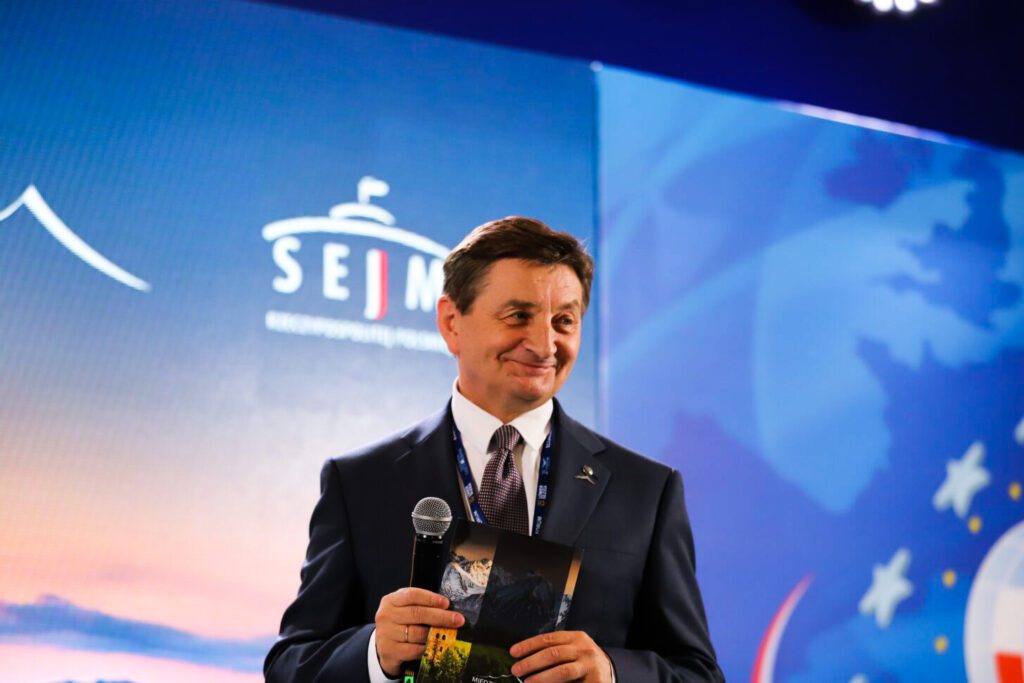
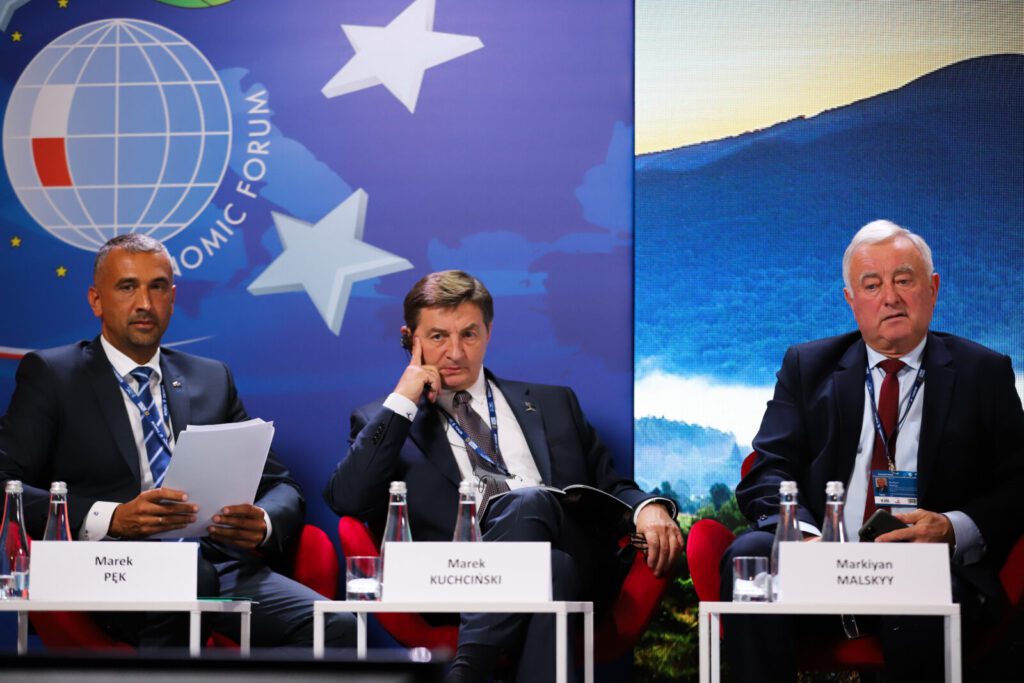
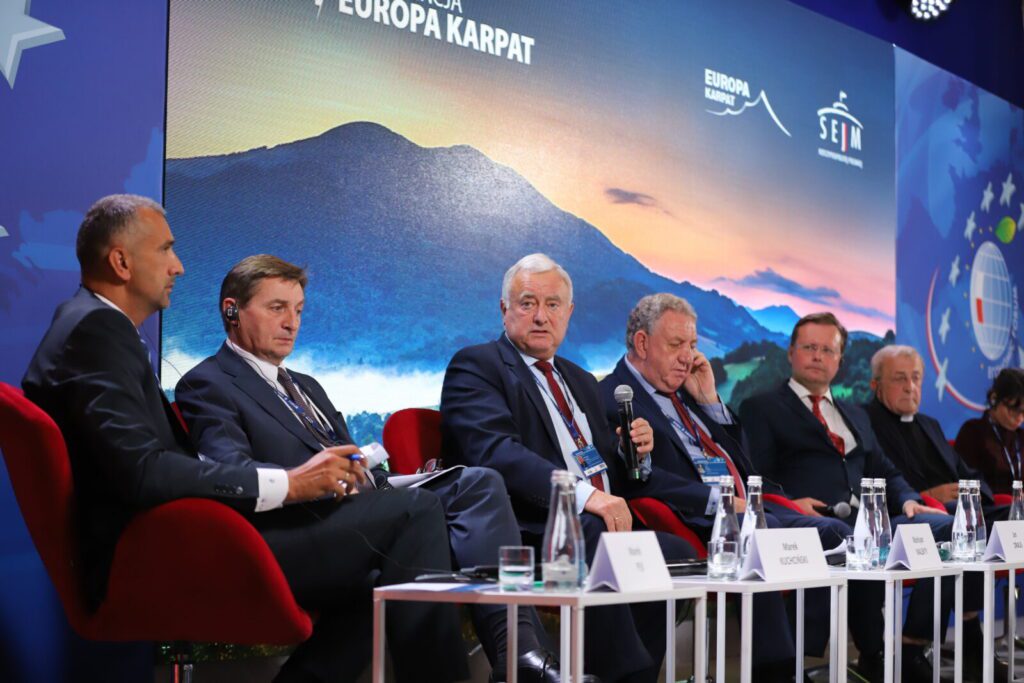
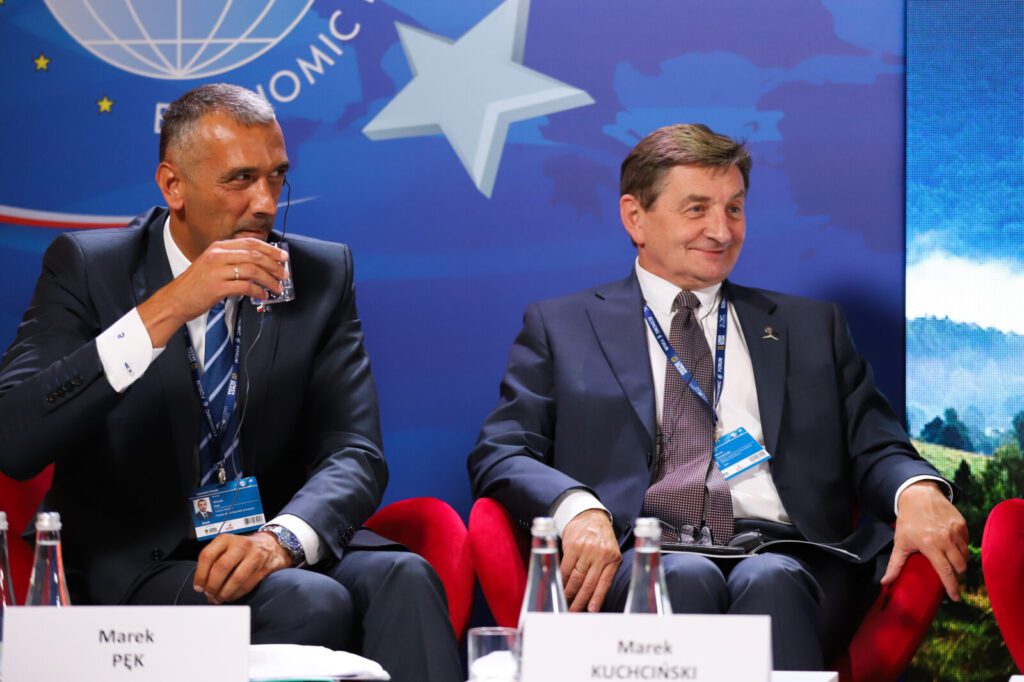
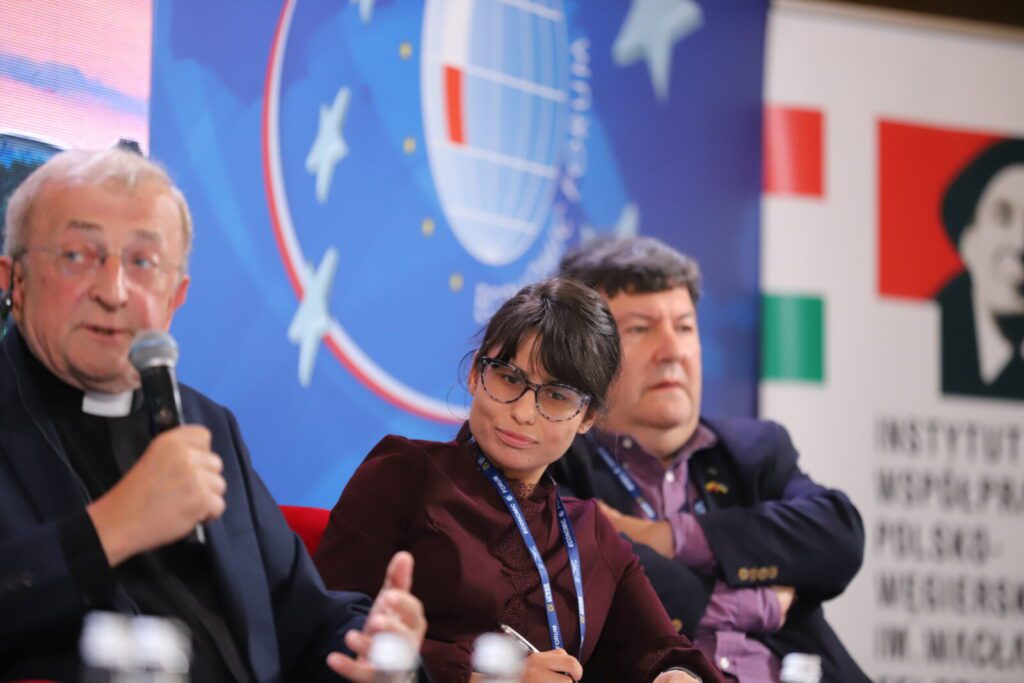
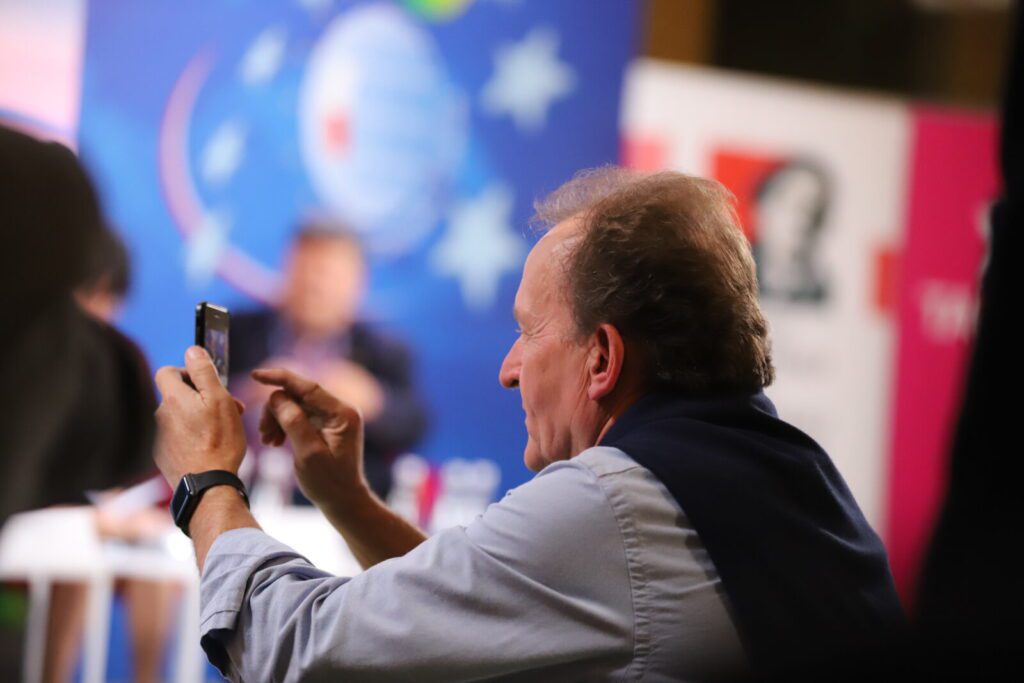
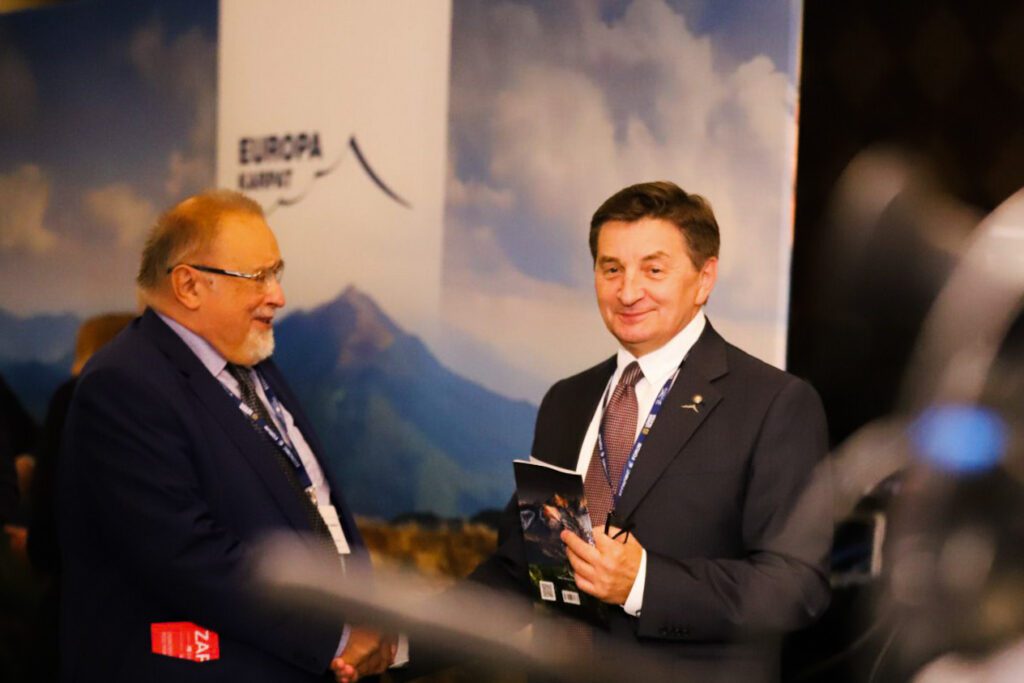


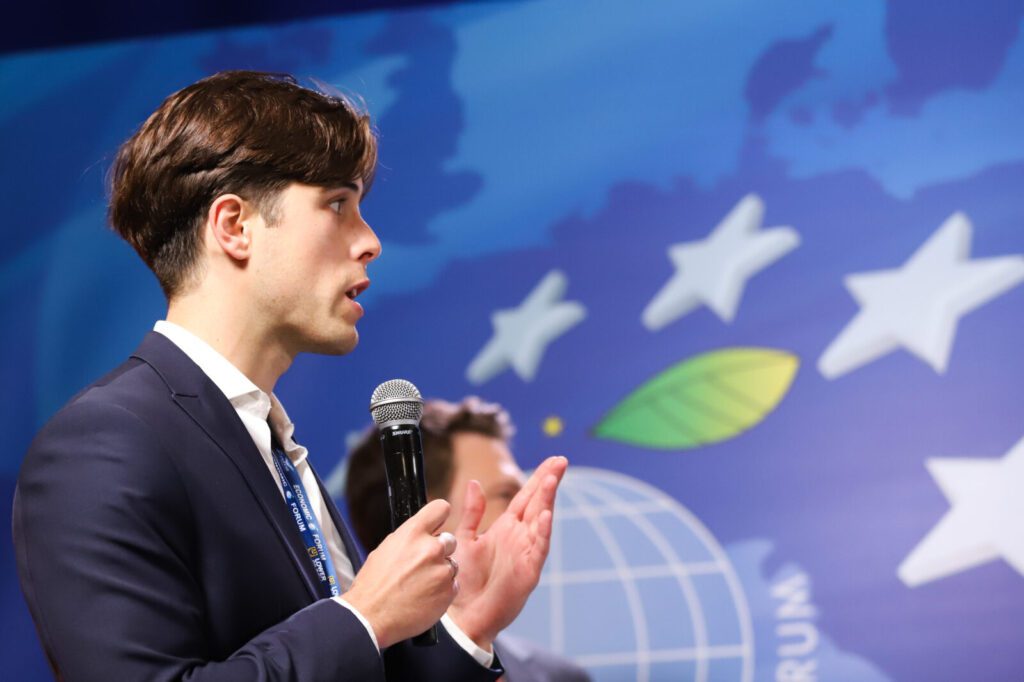
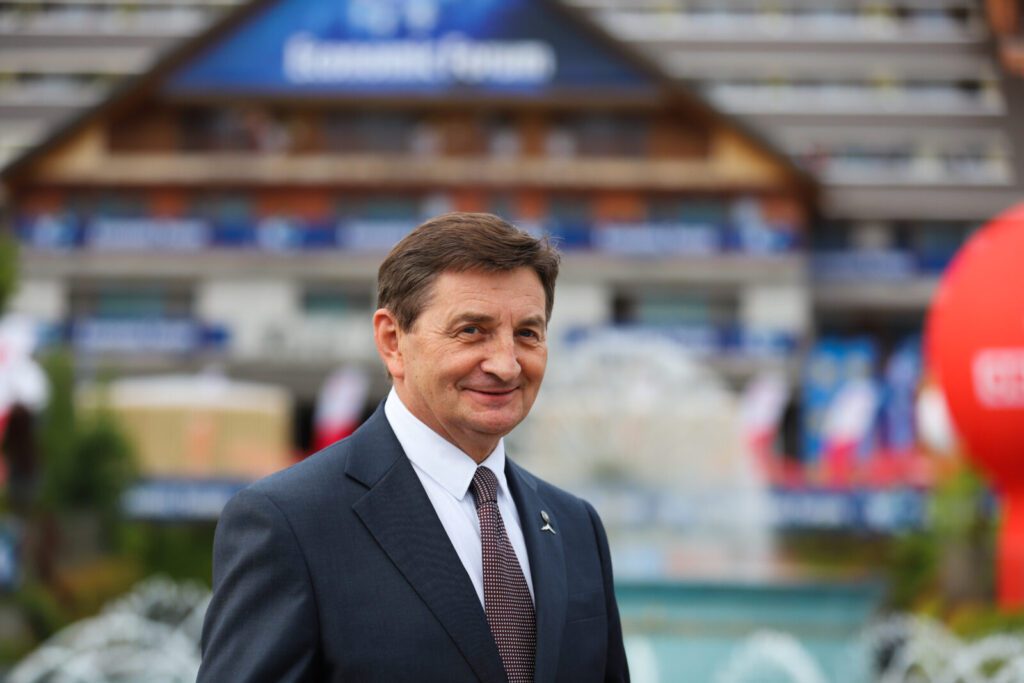
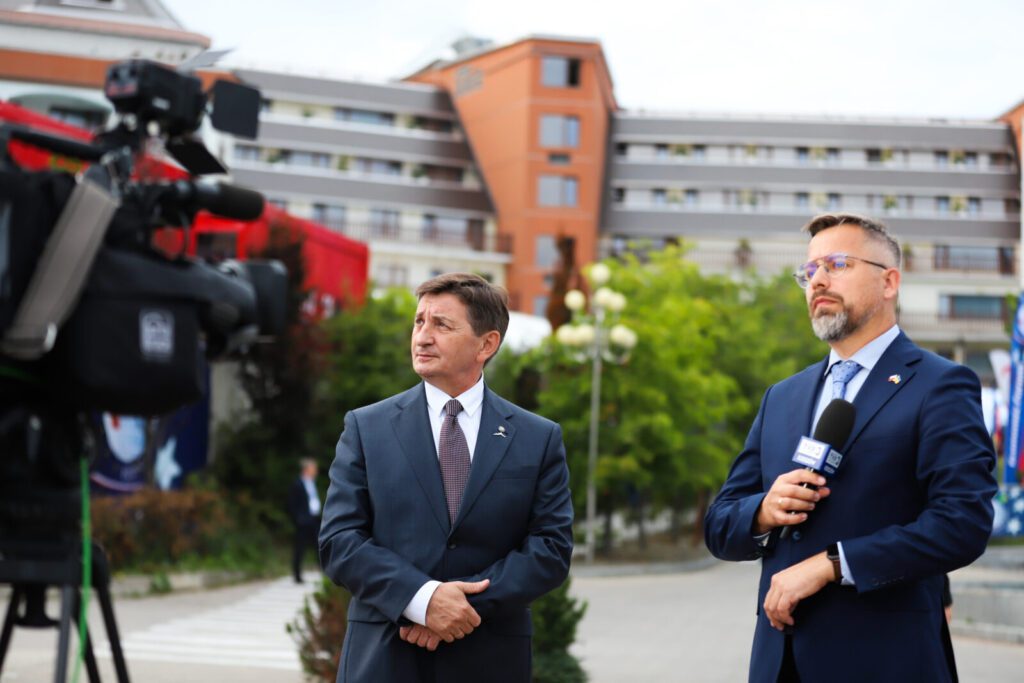
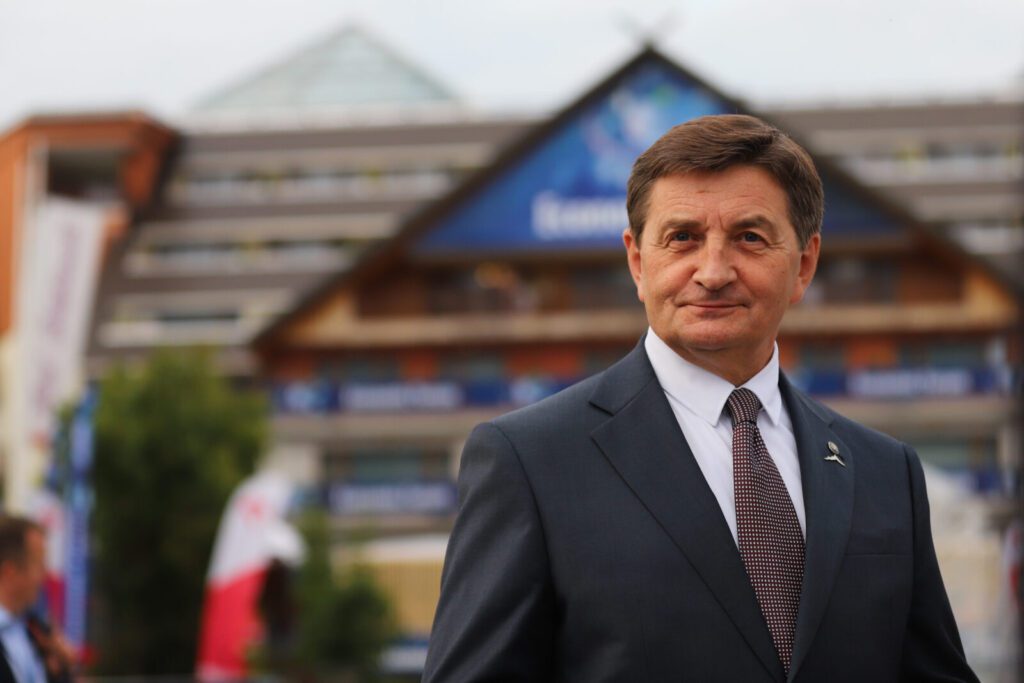
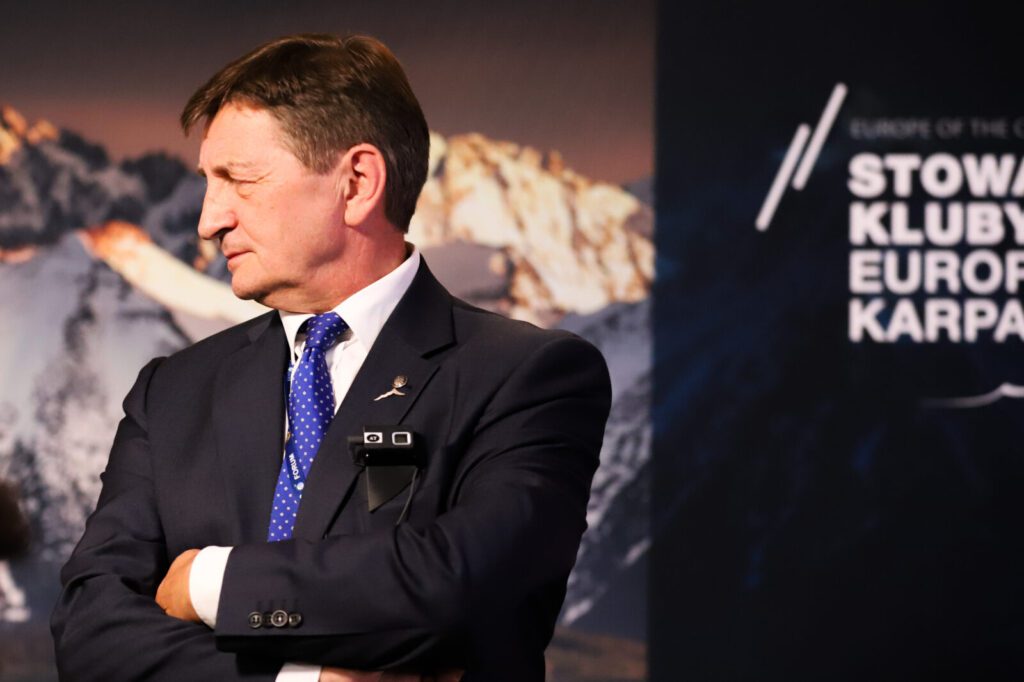
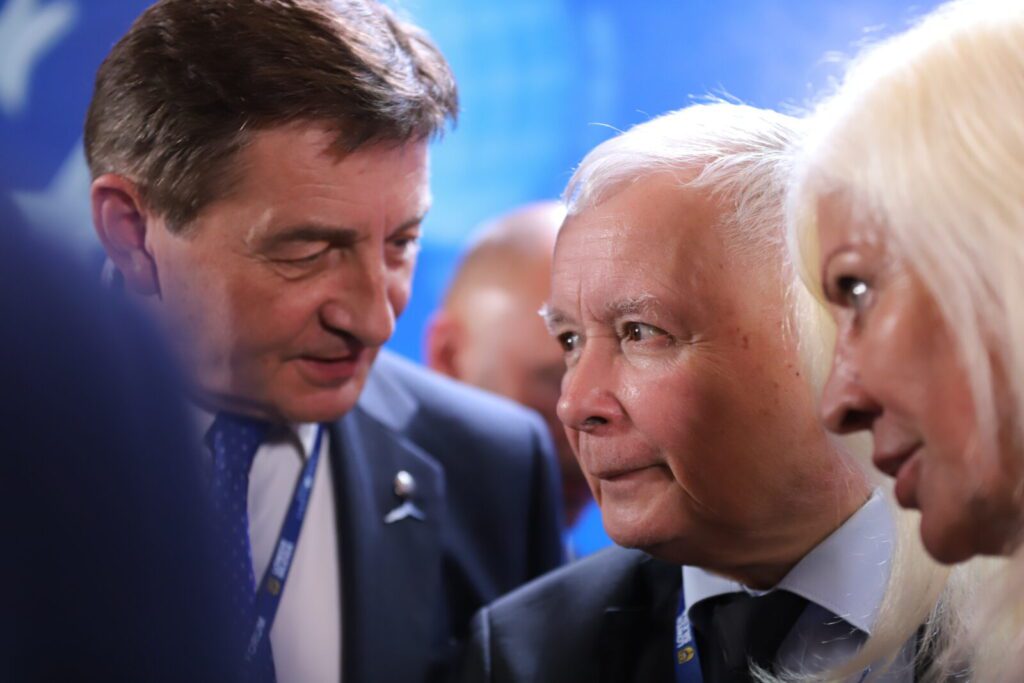
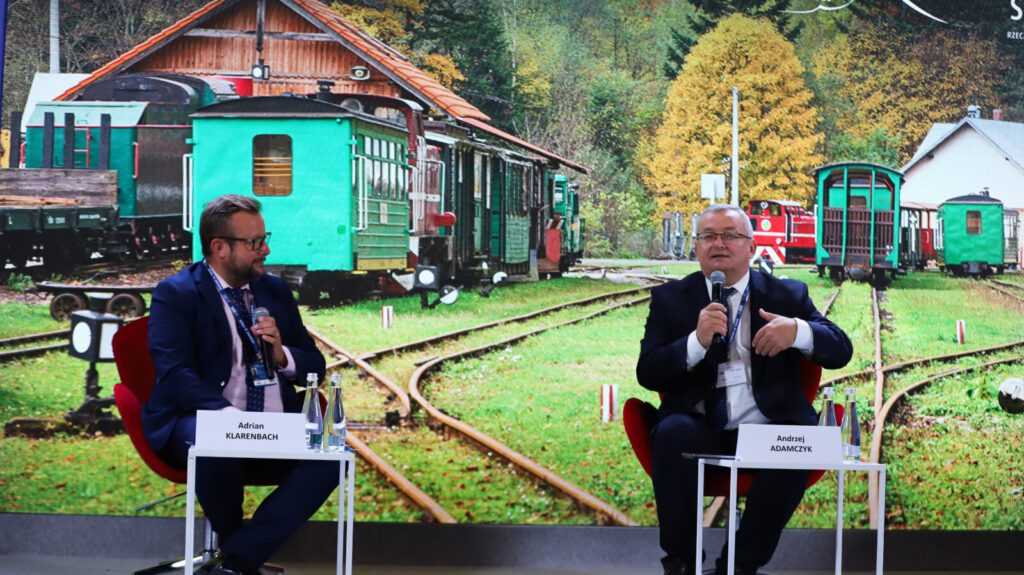
Geopolitical importance of the TEN-T network in Central and Eastern Europe
